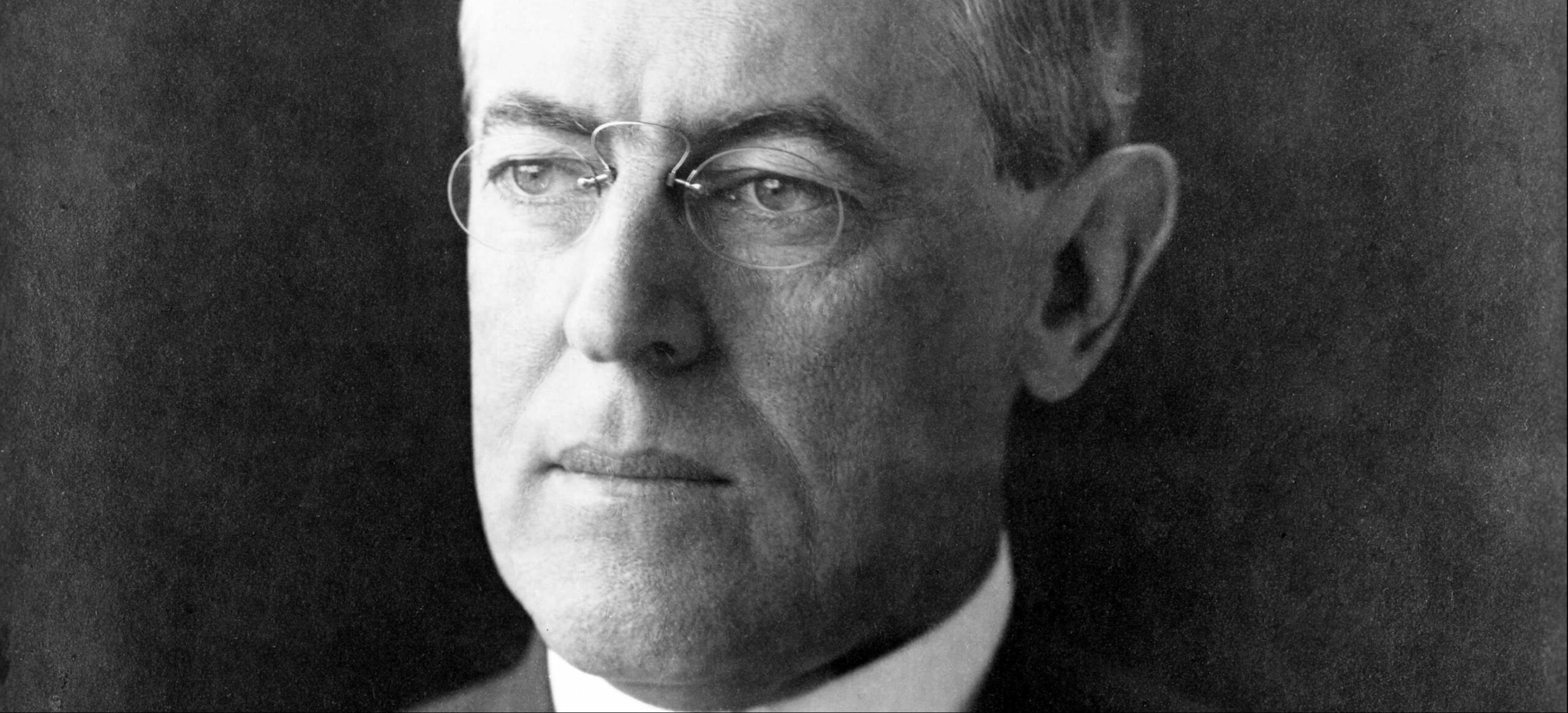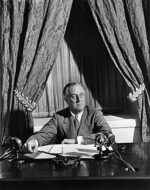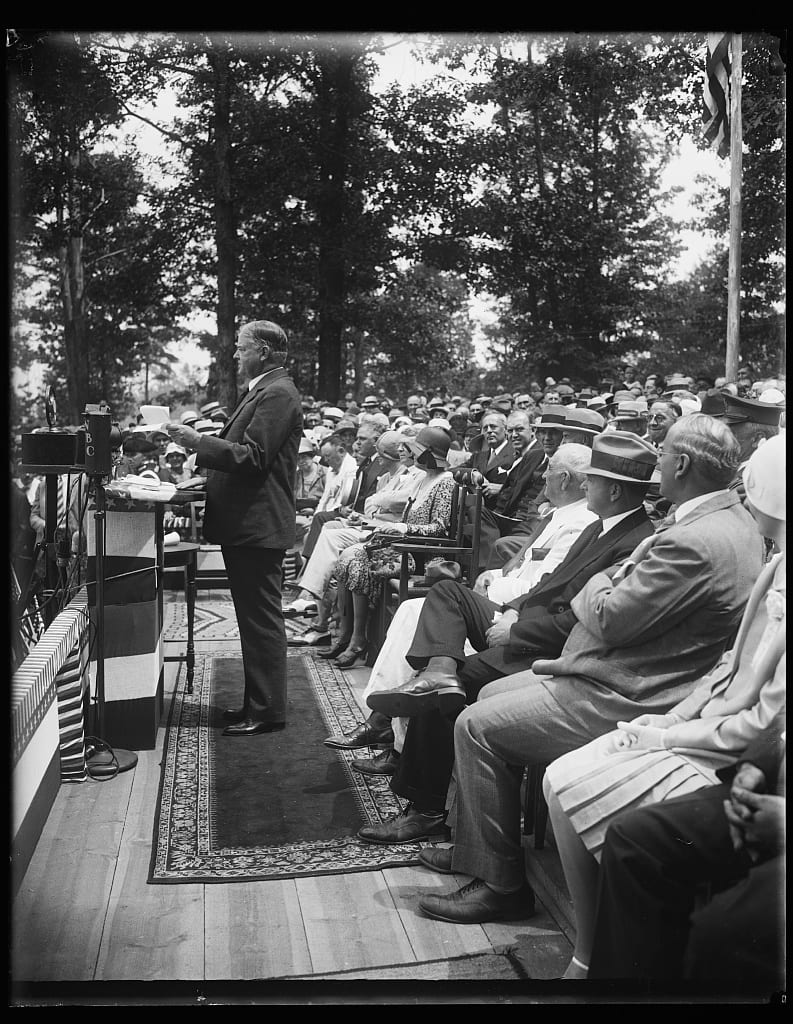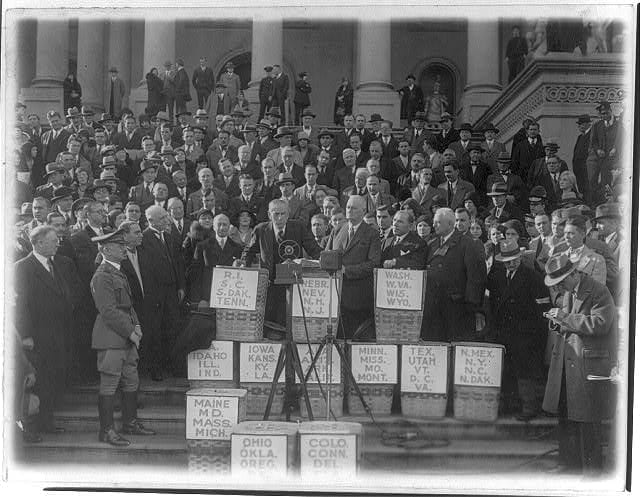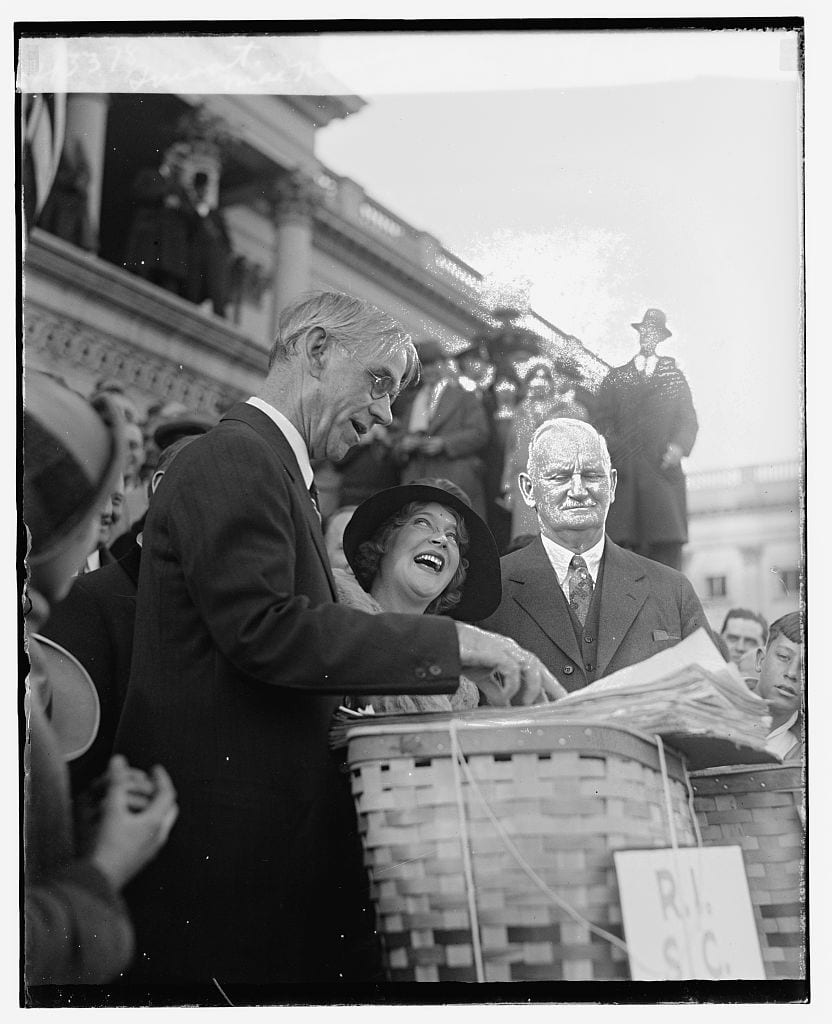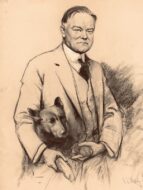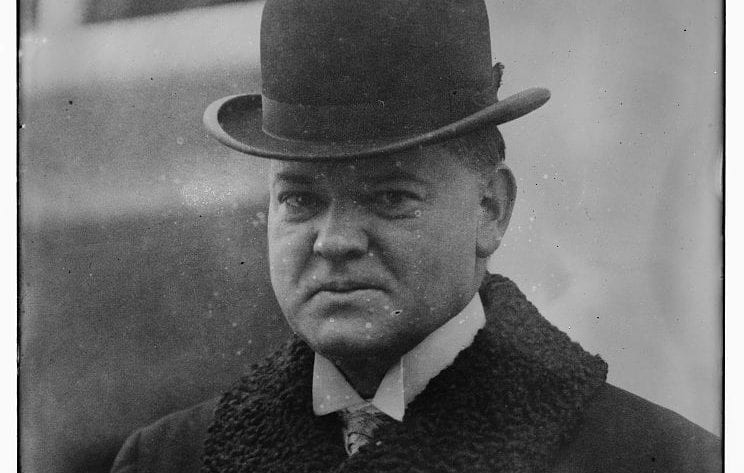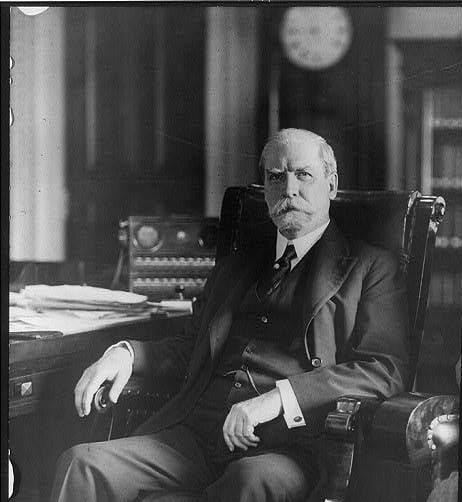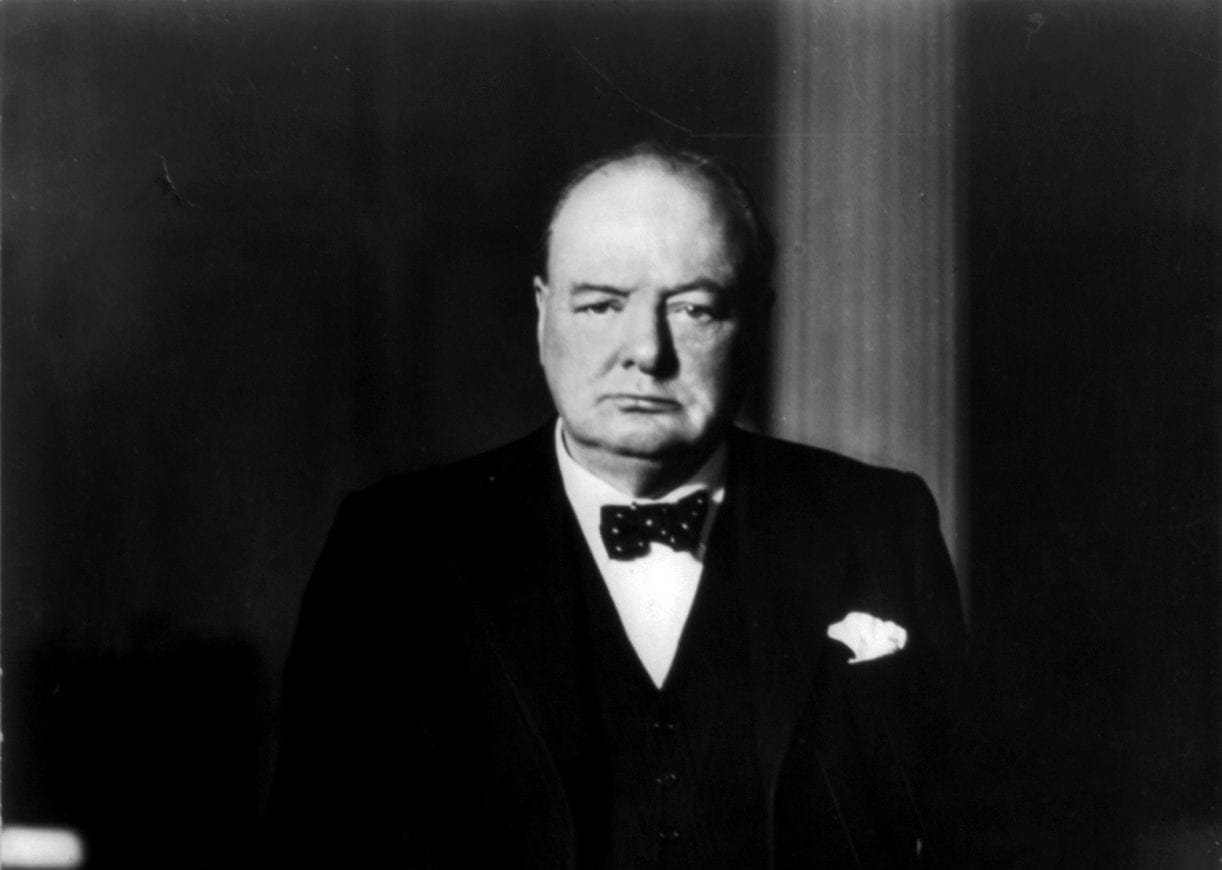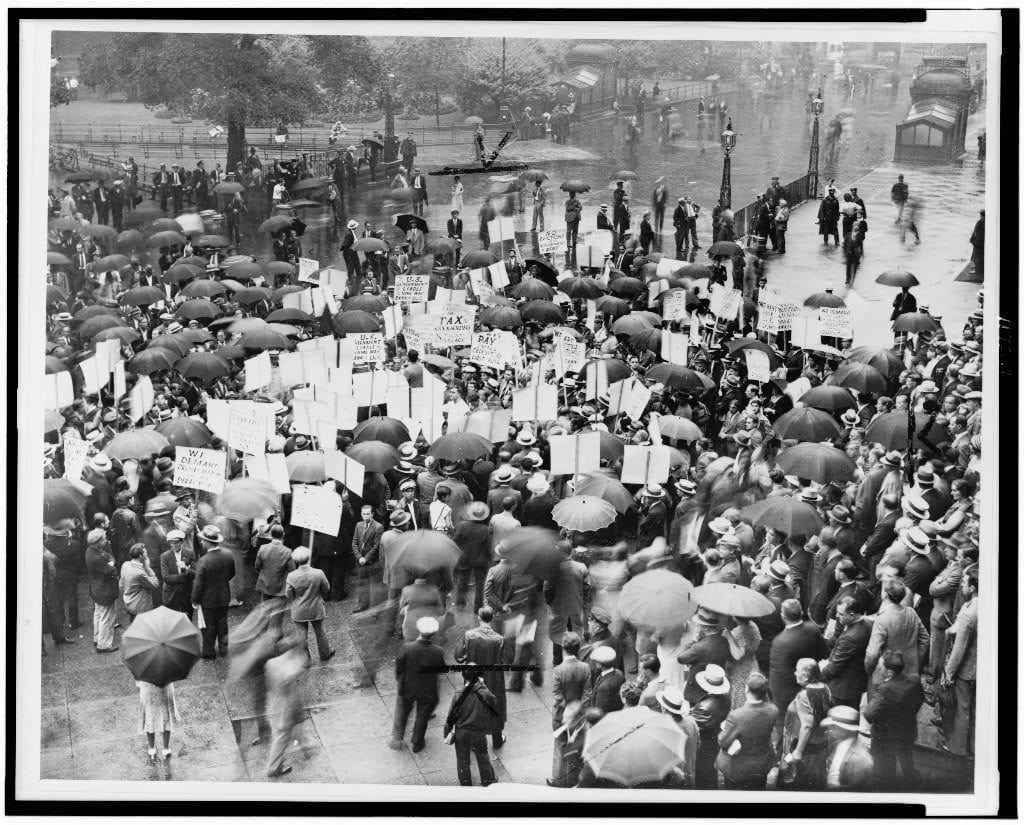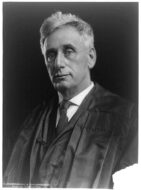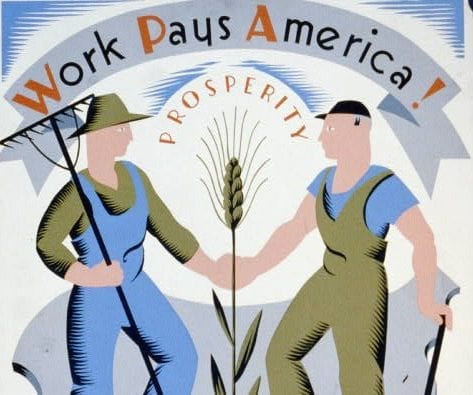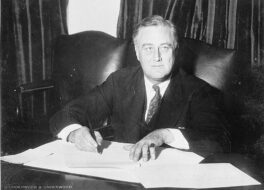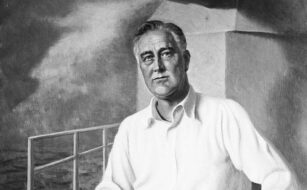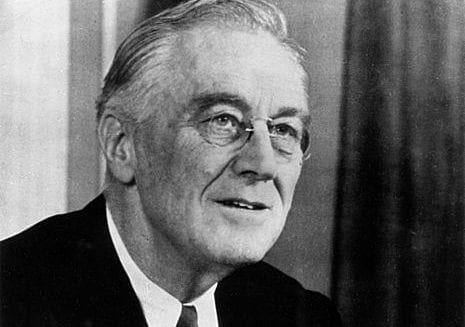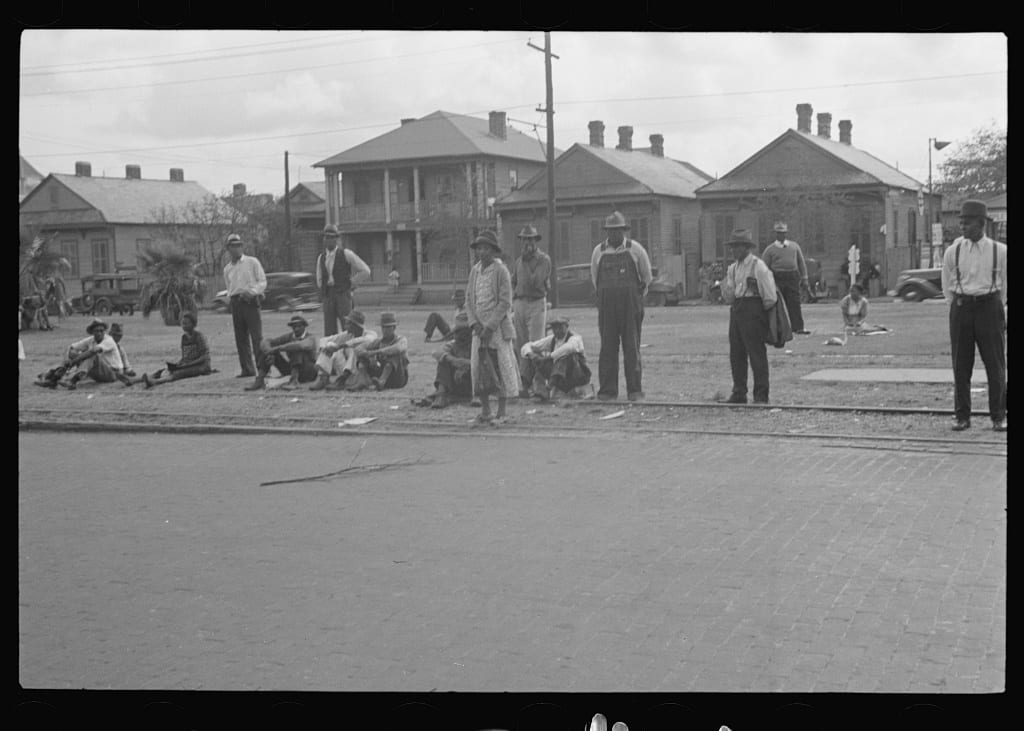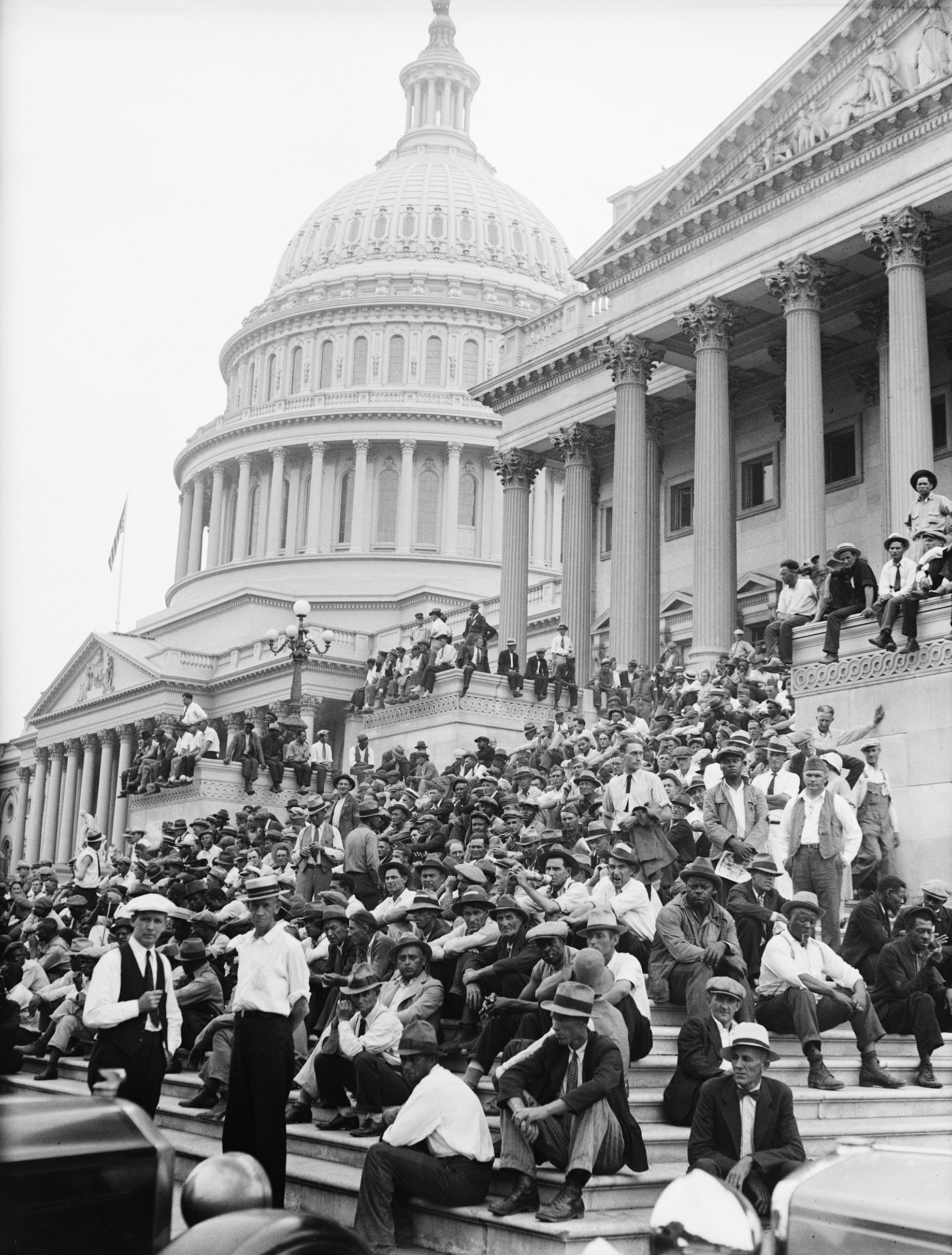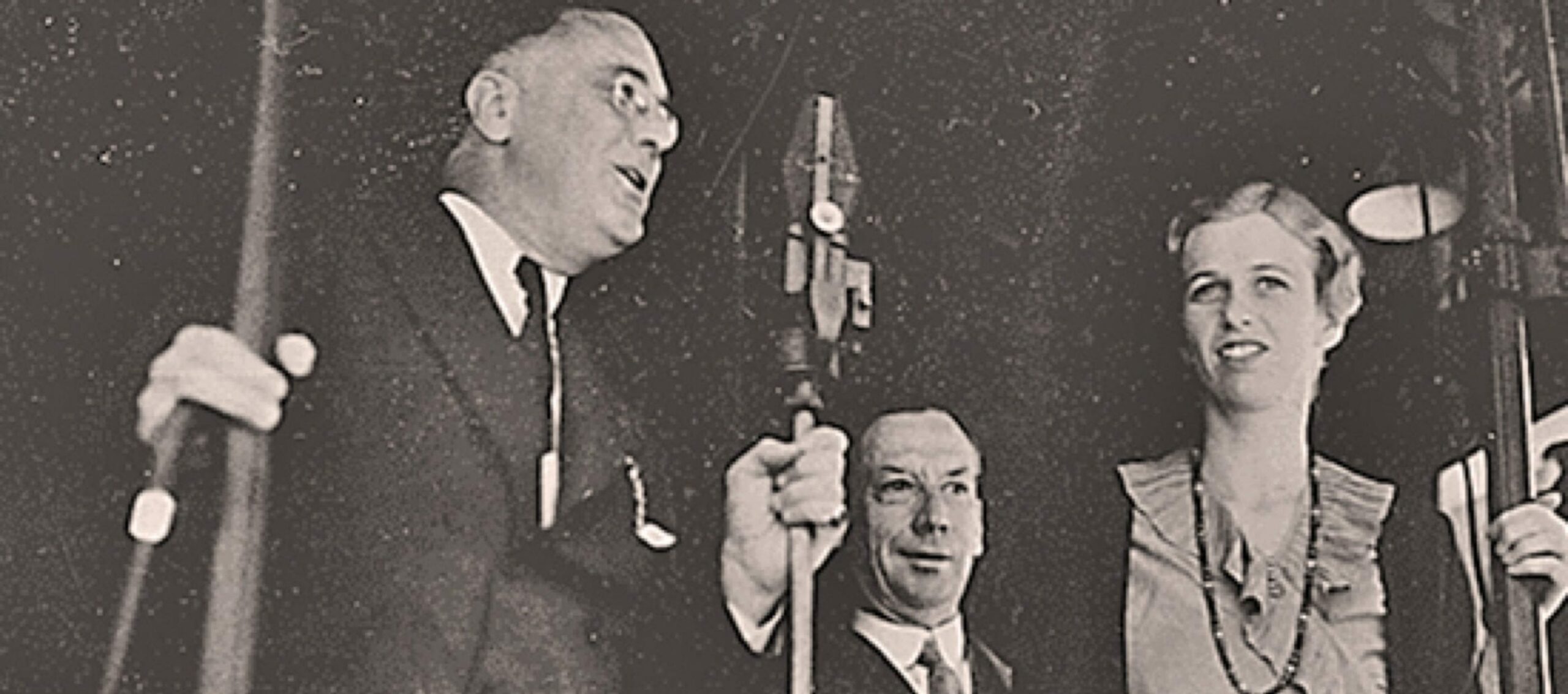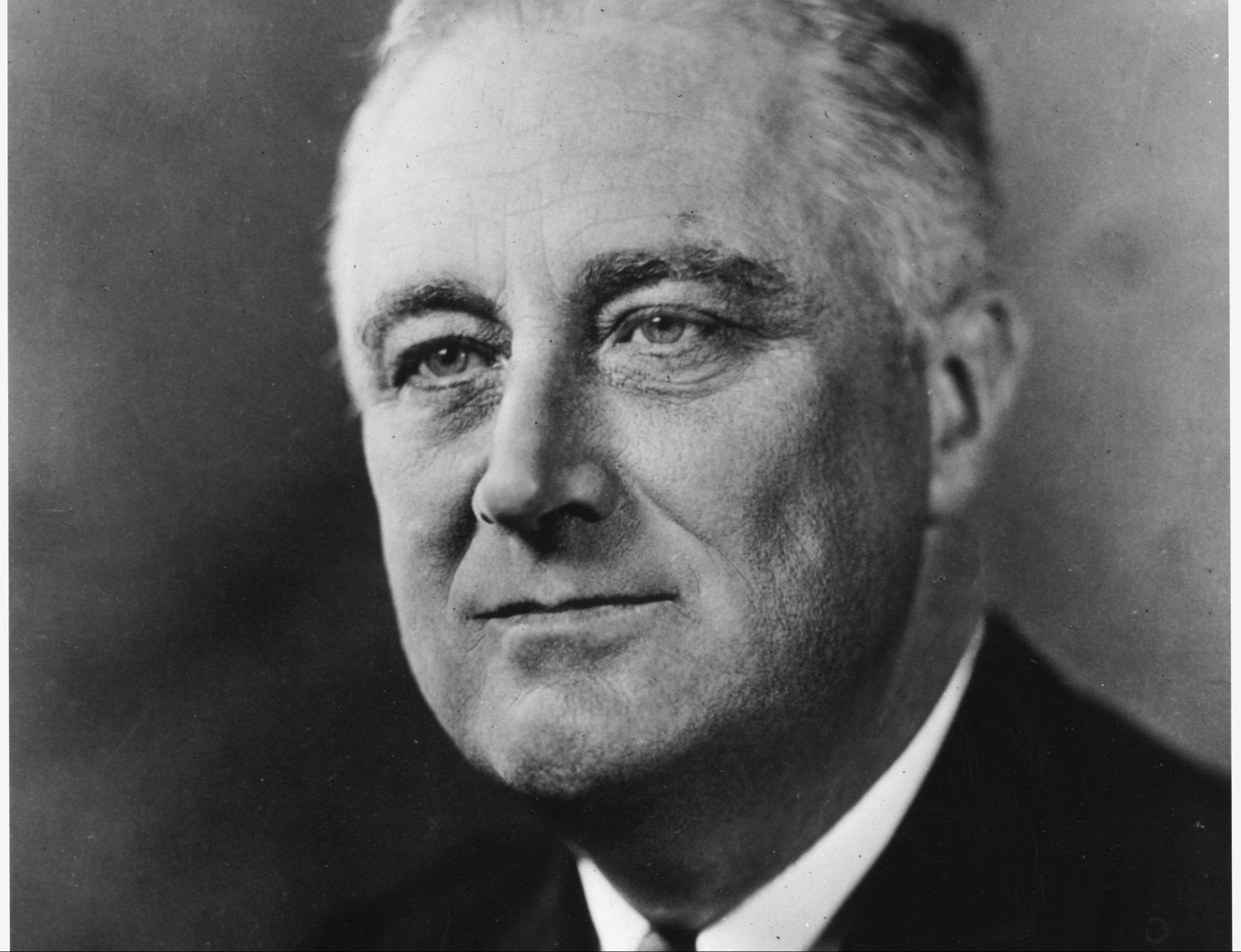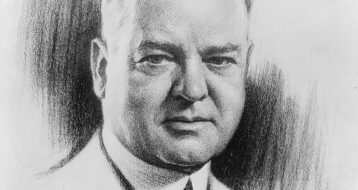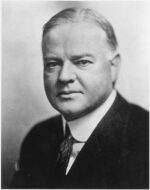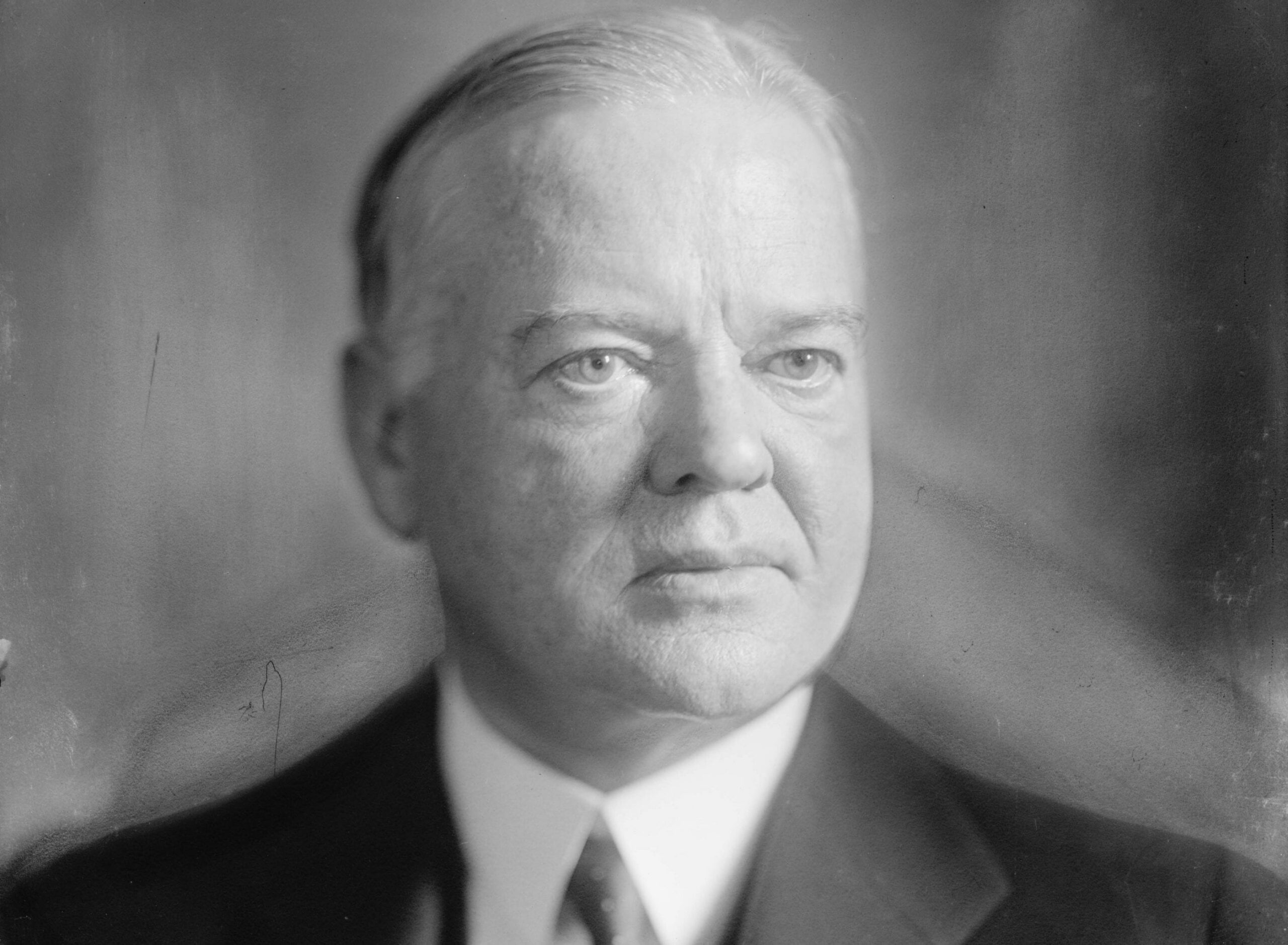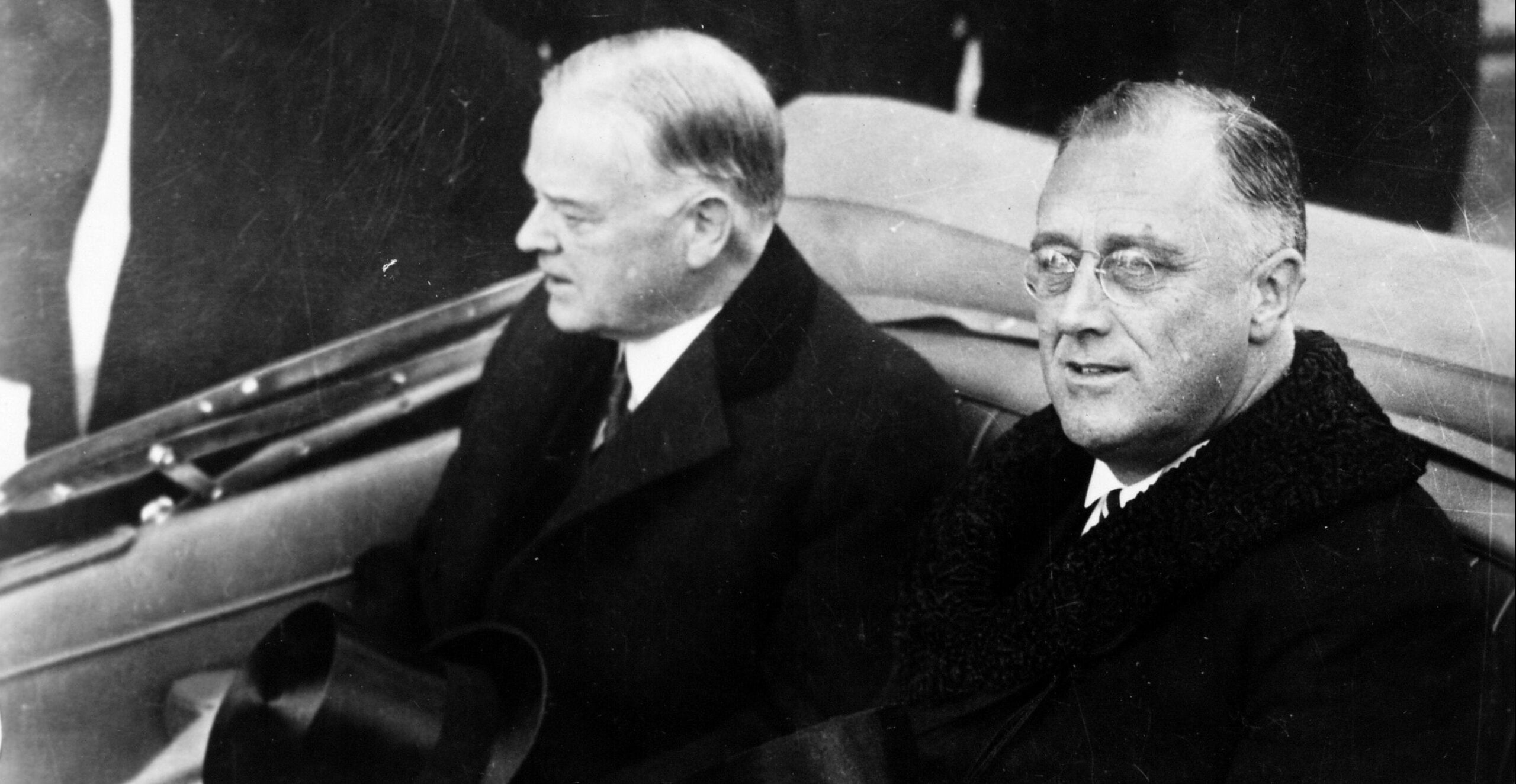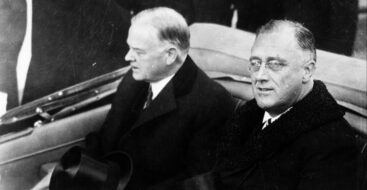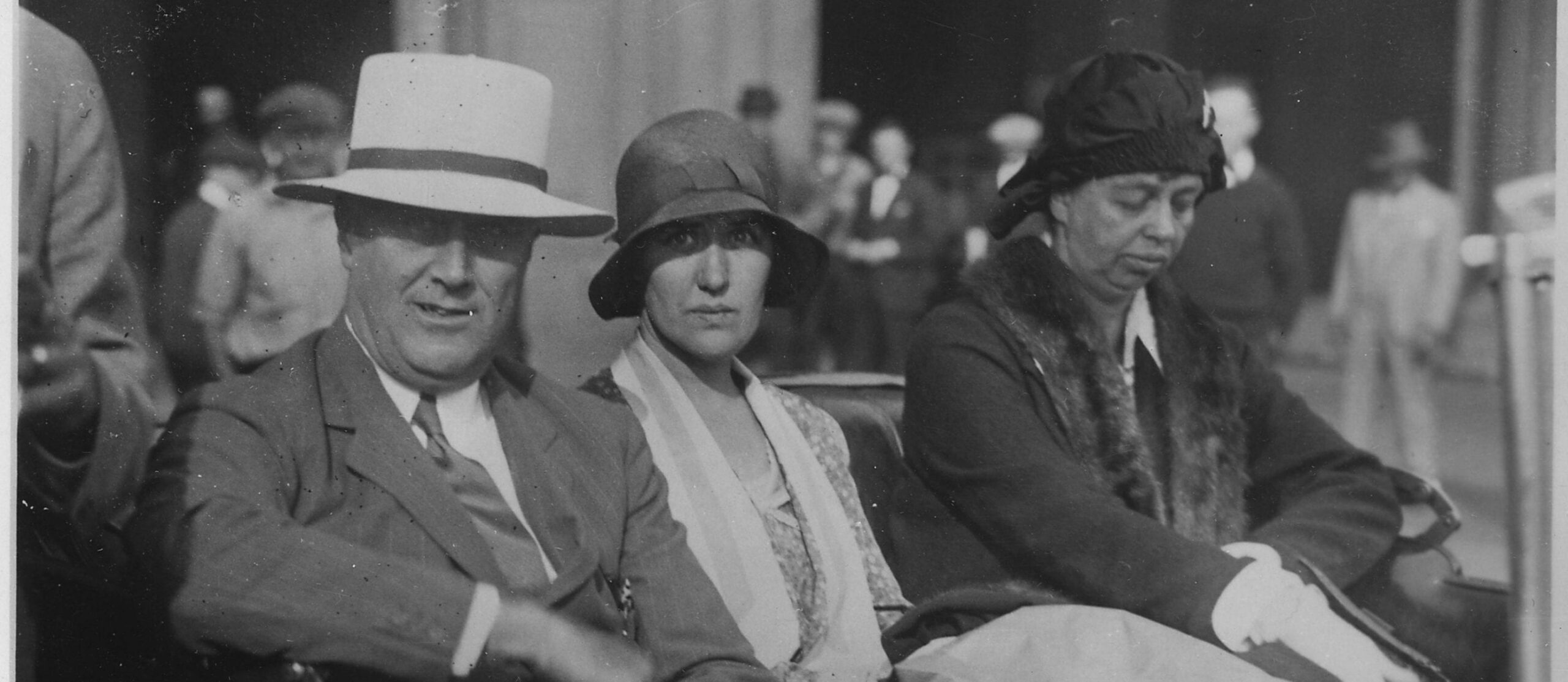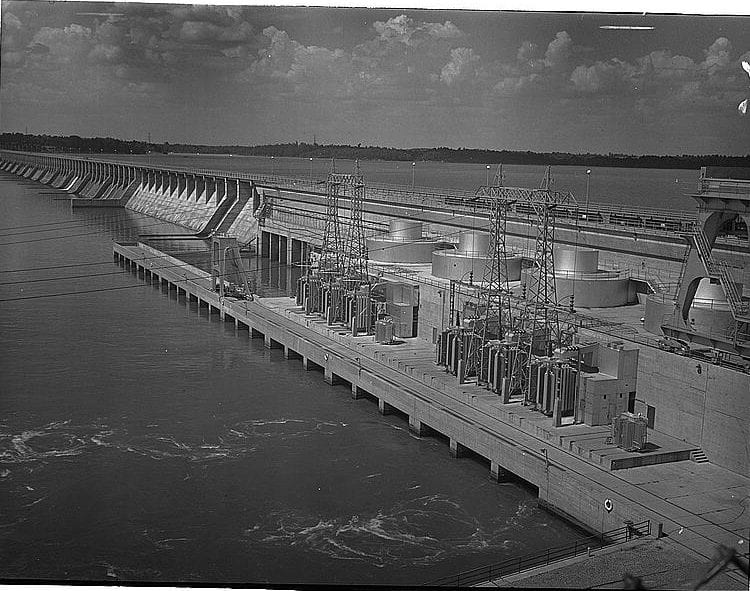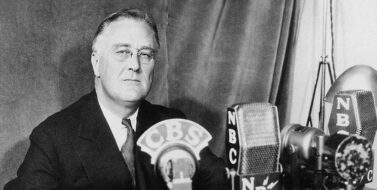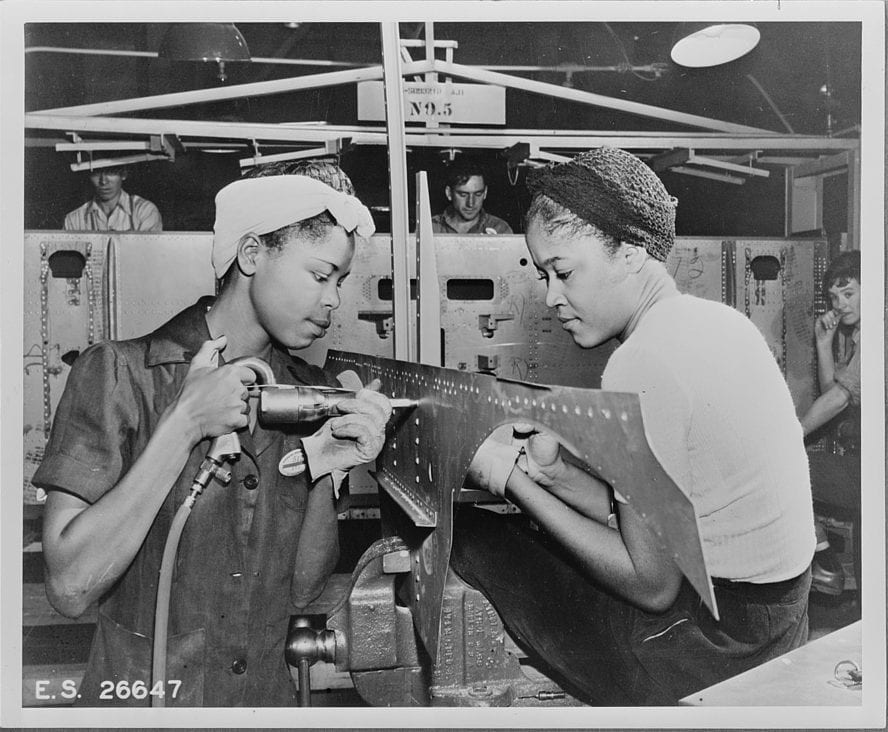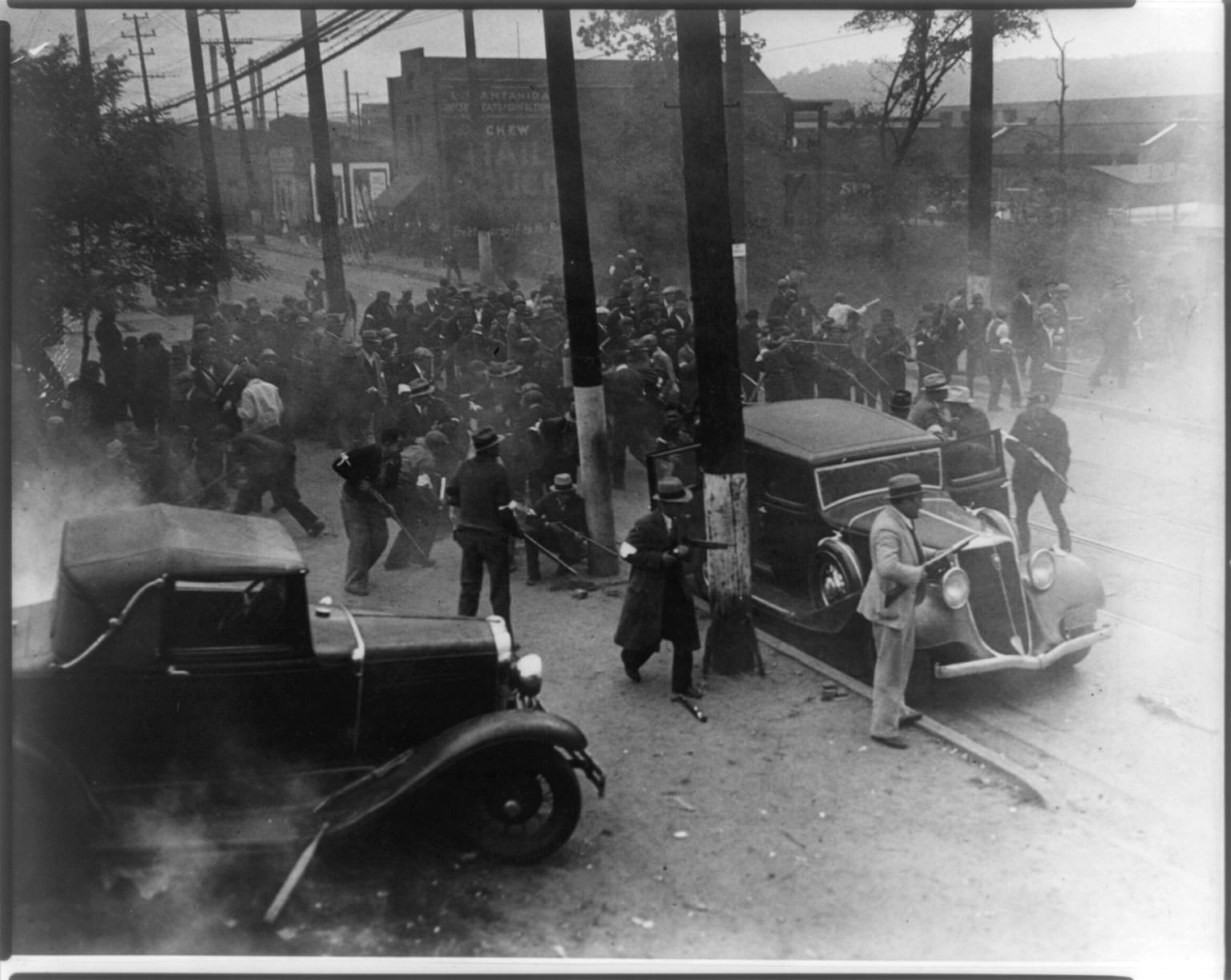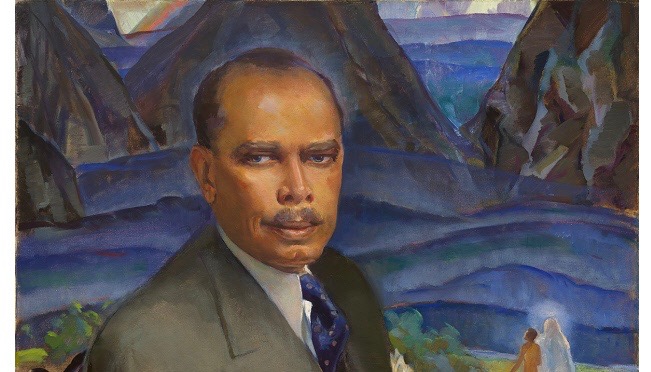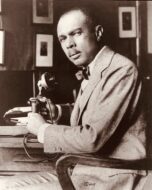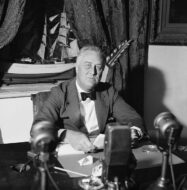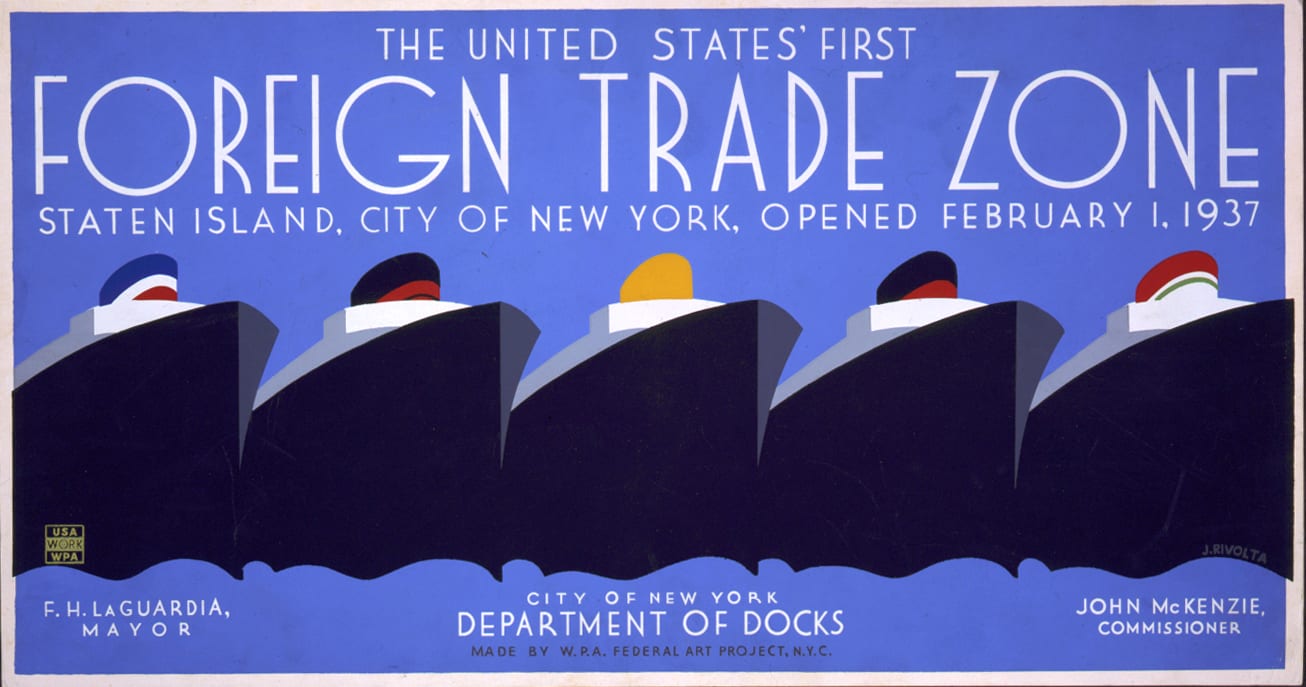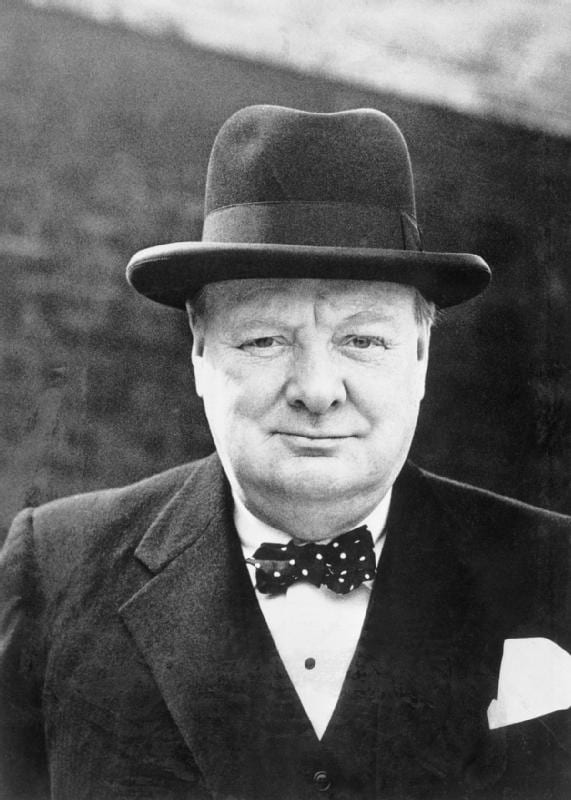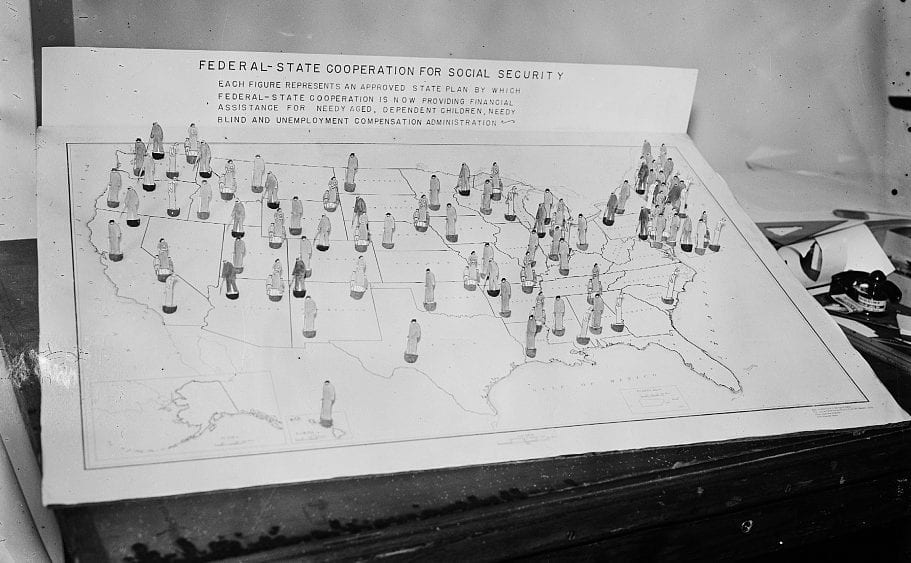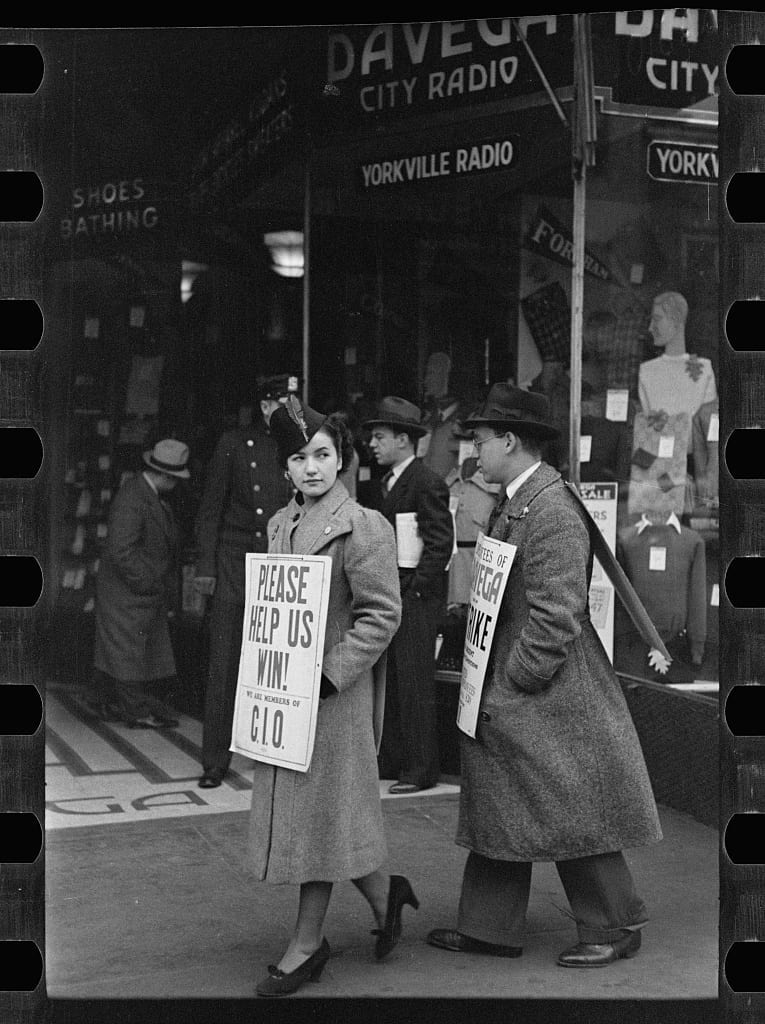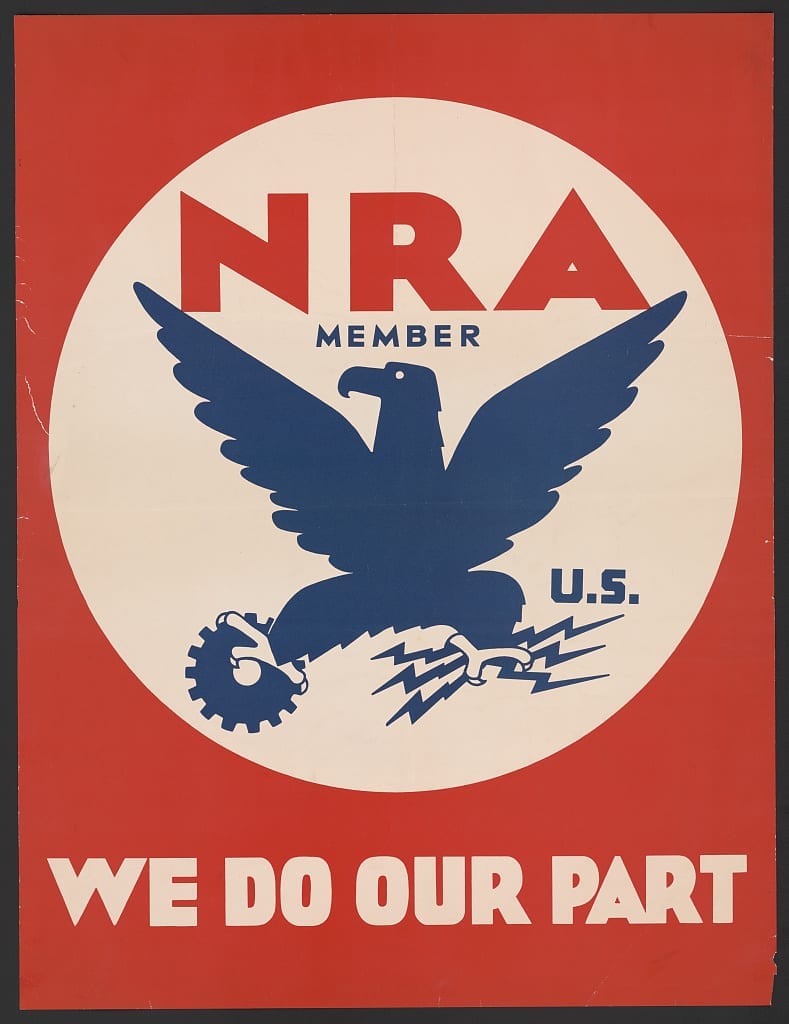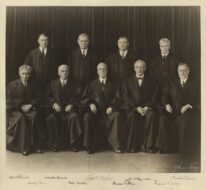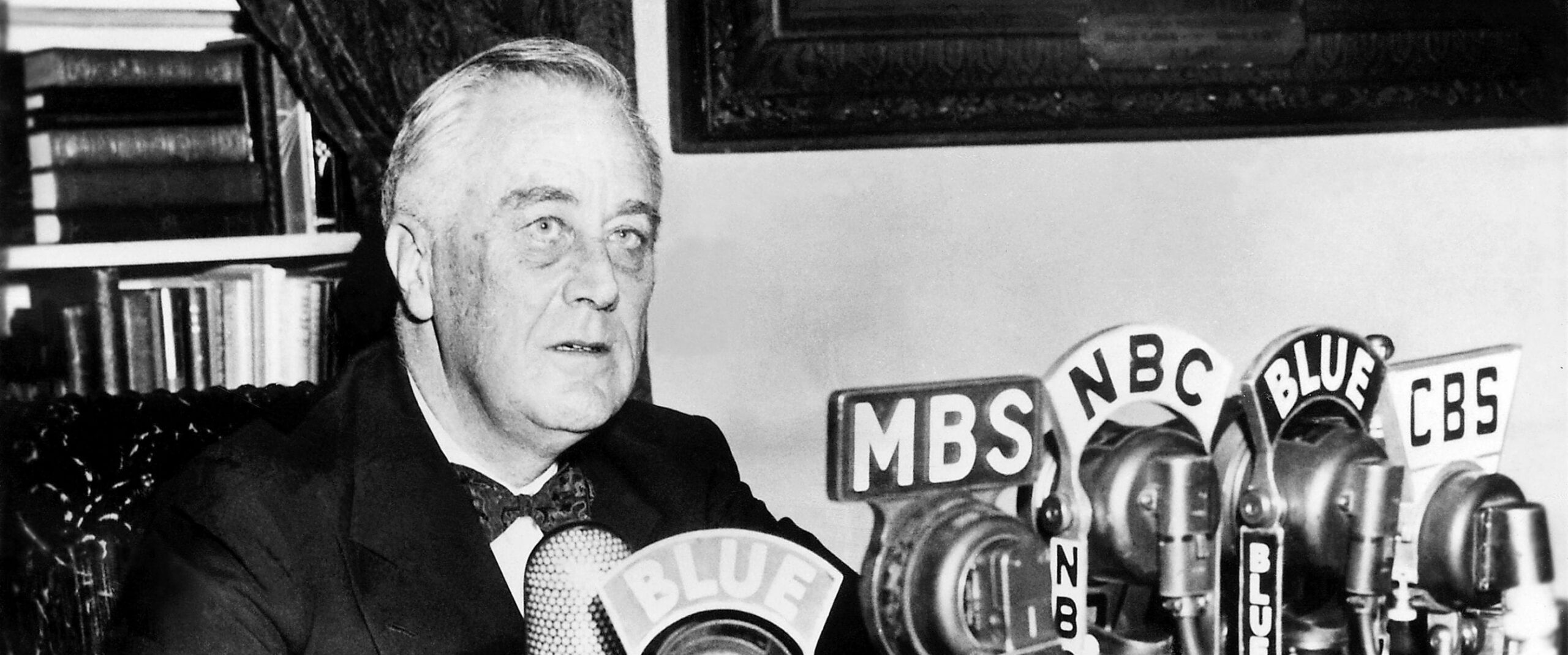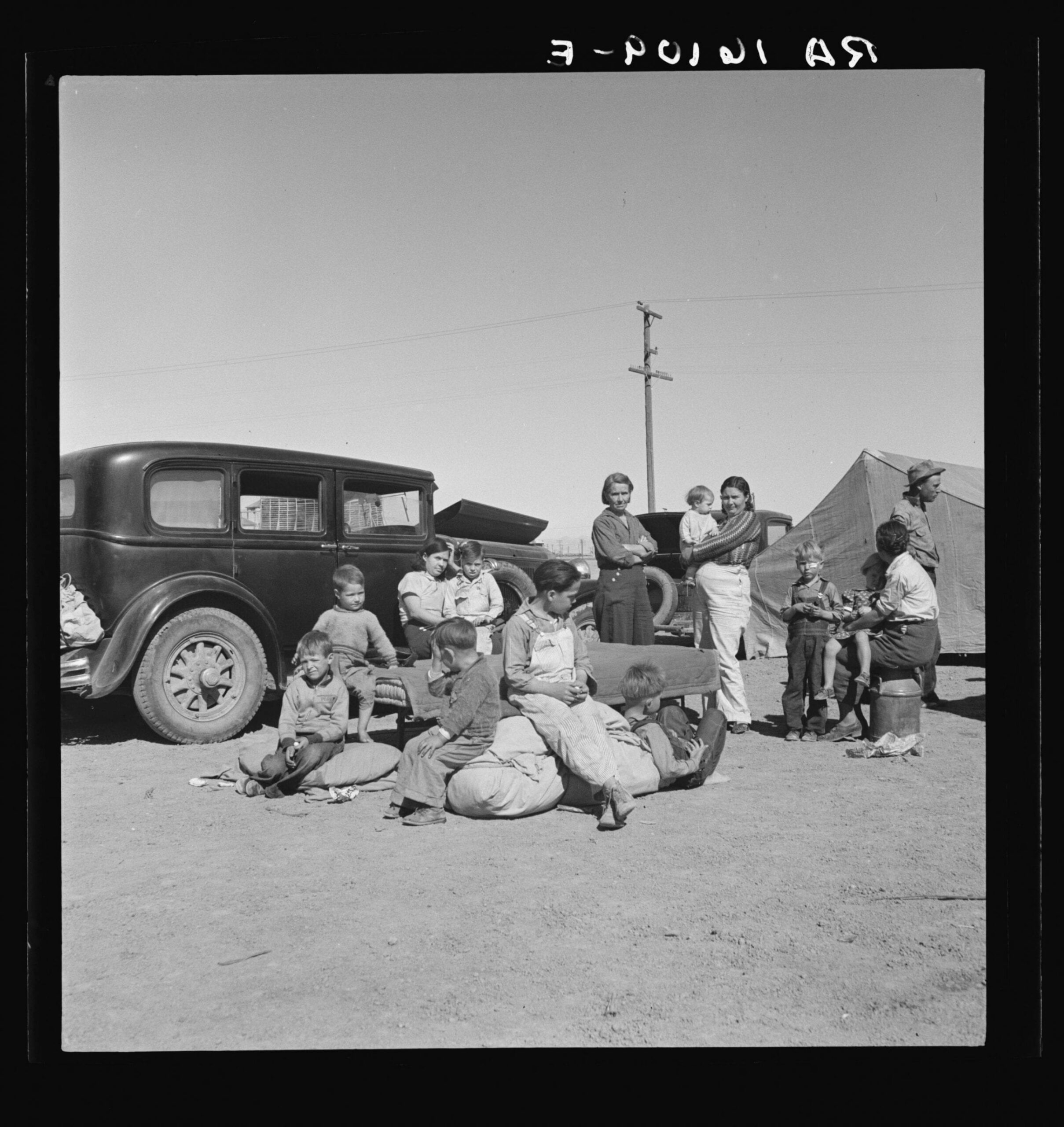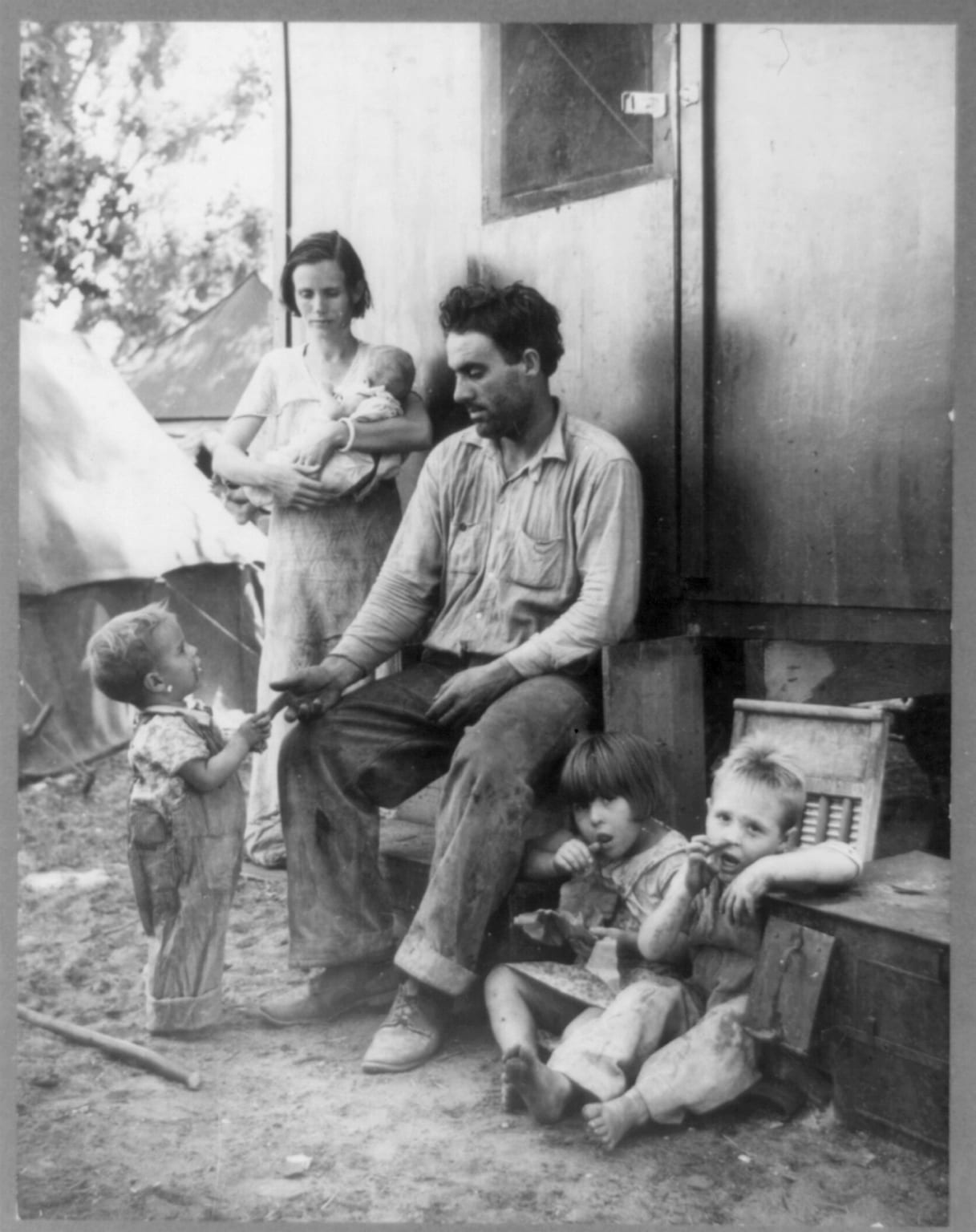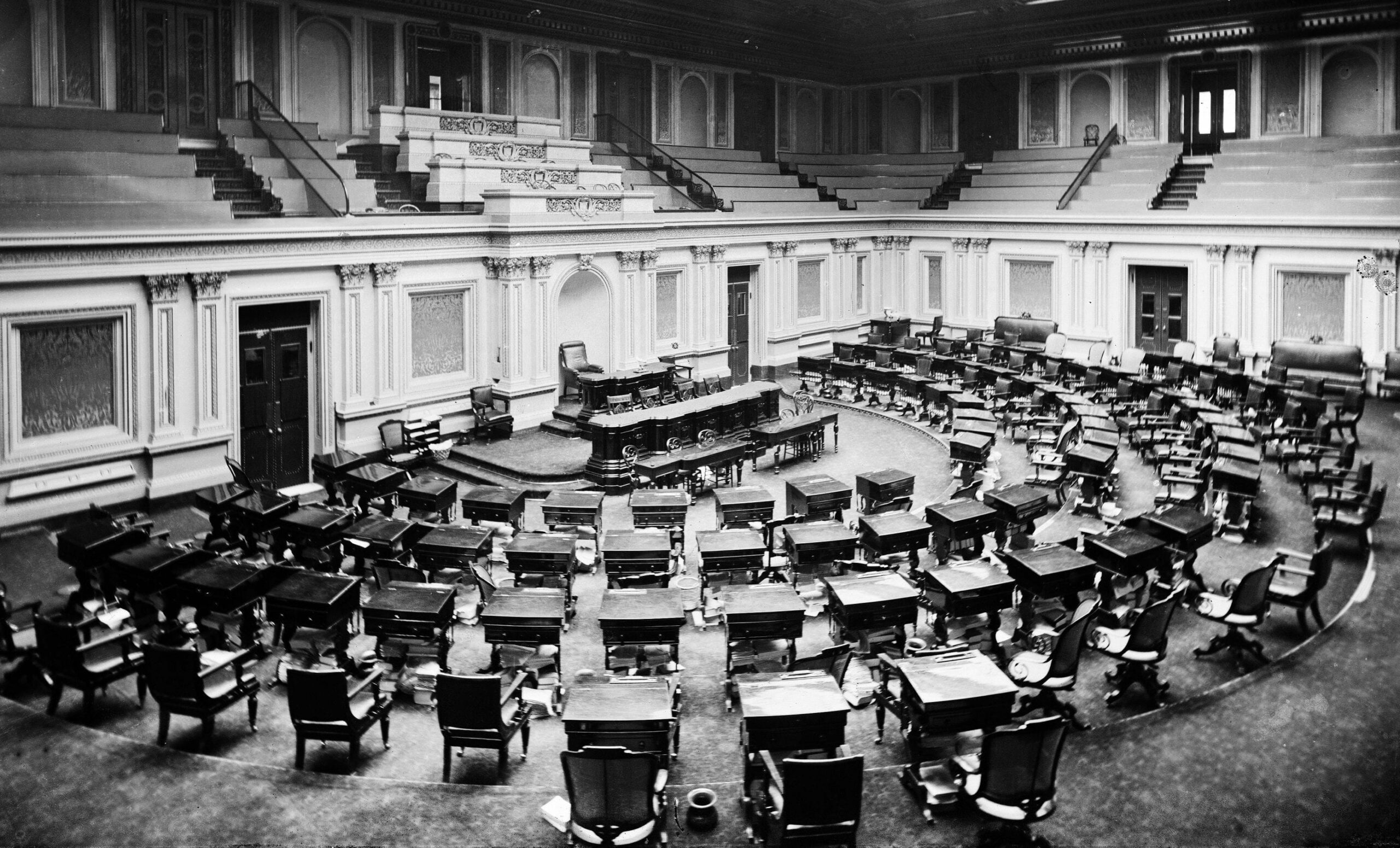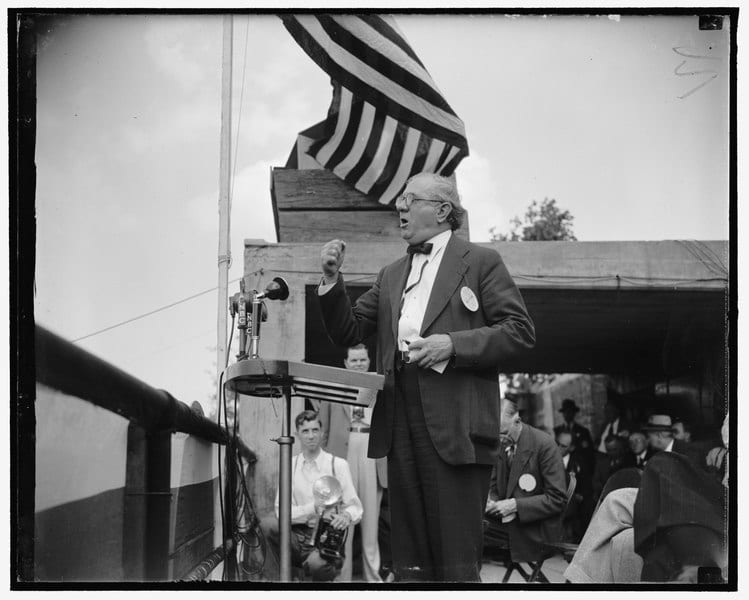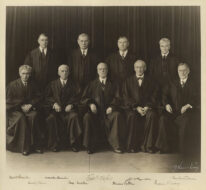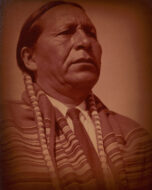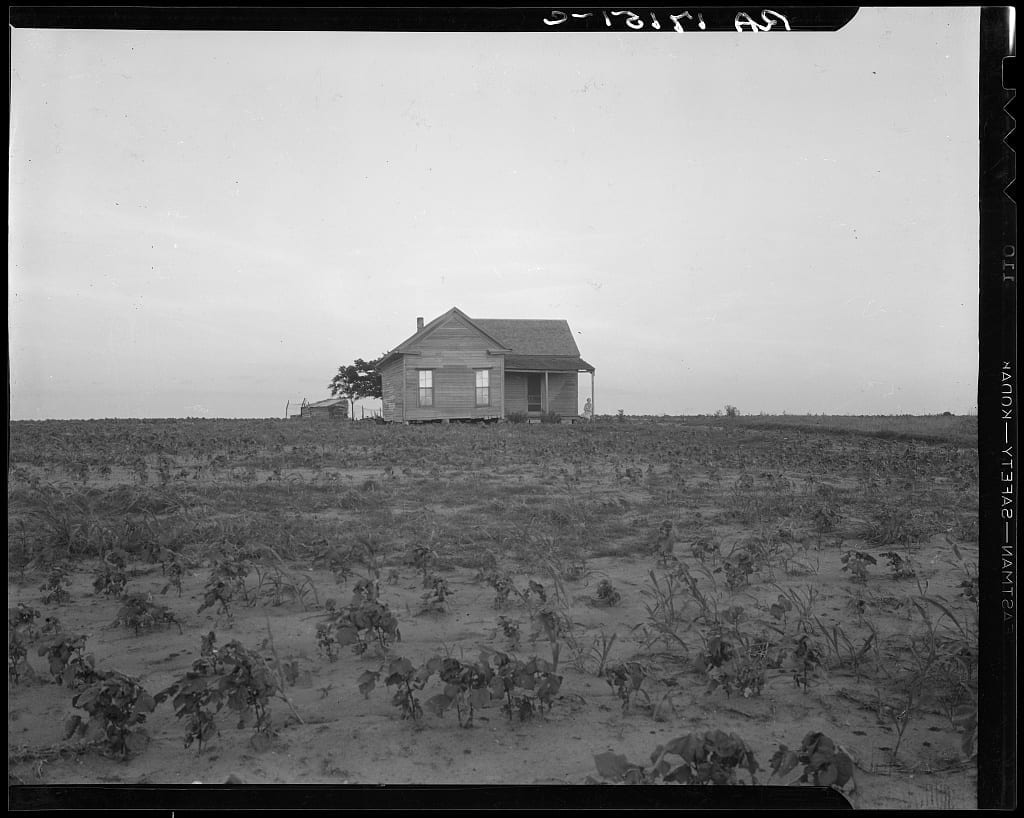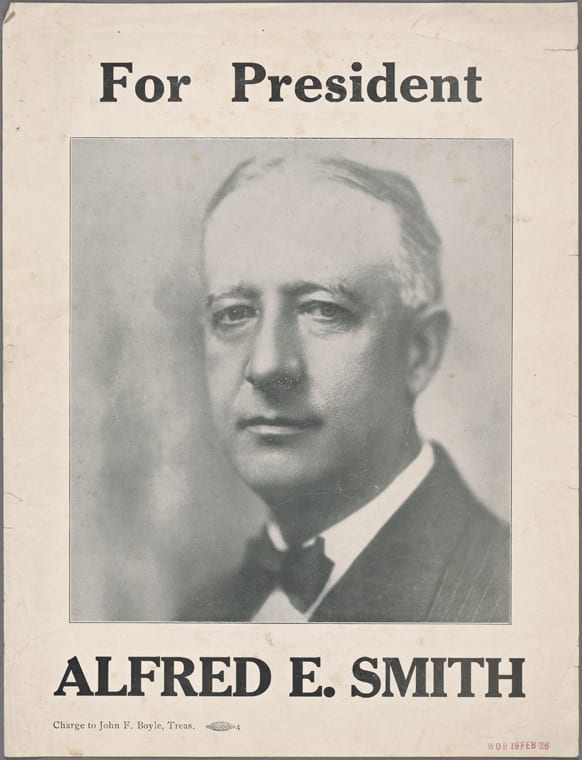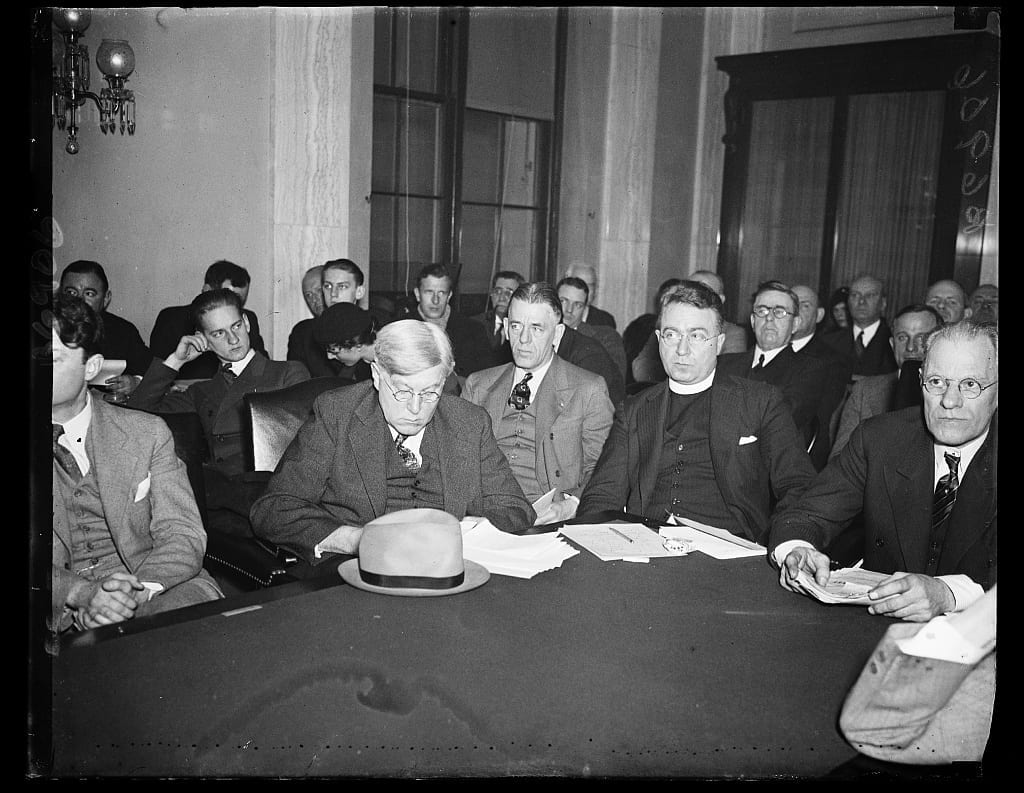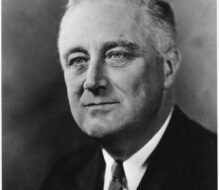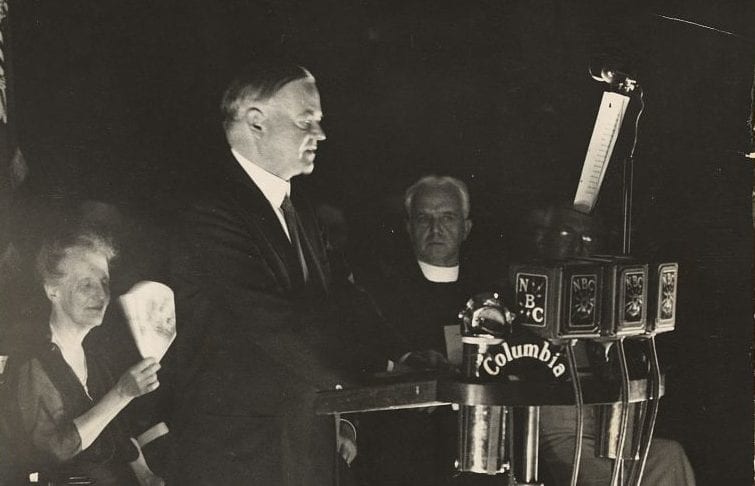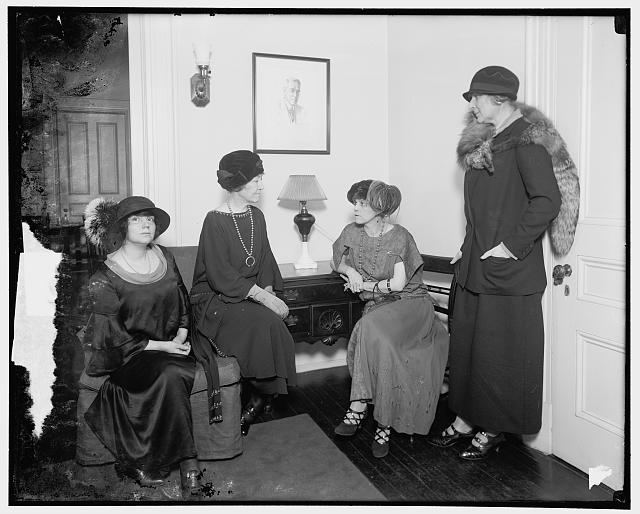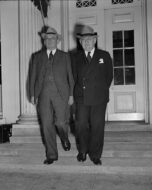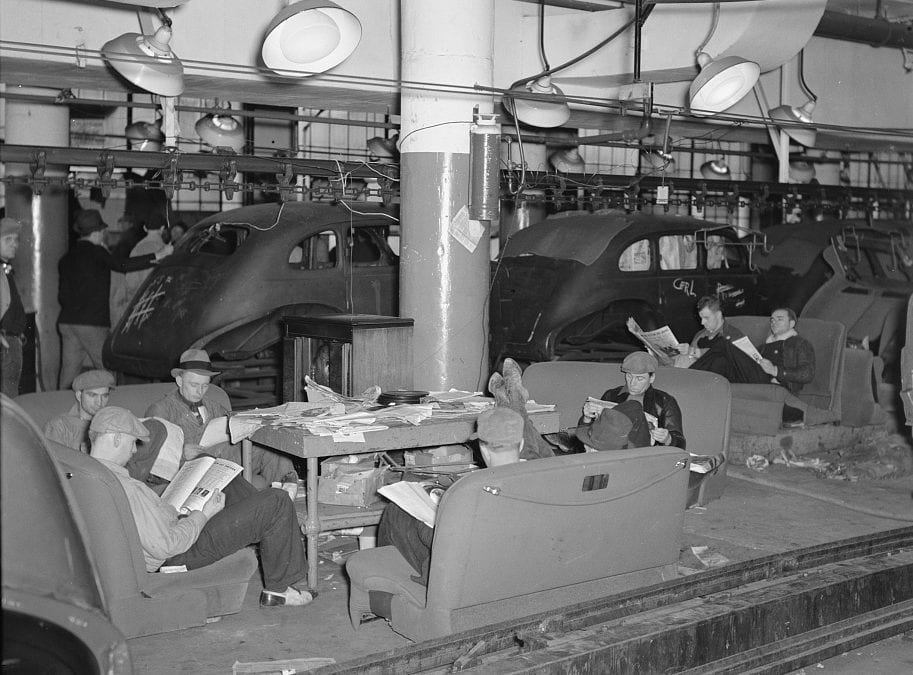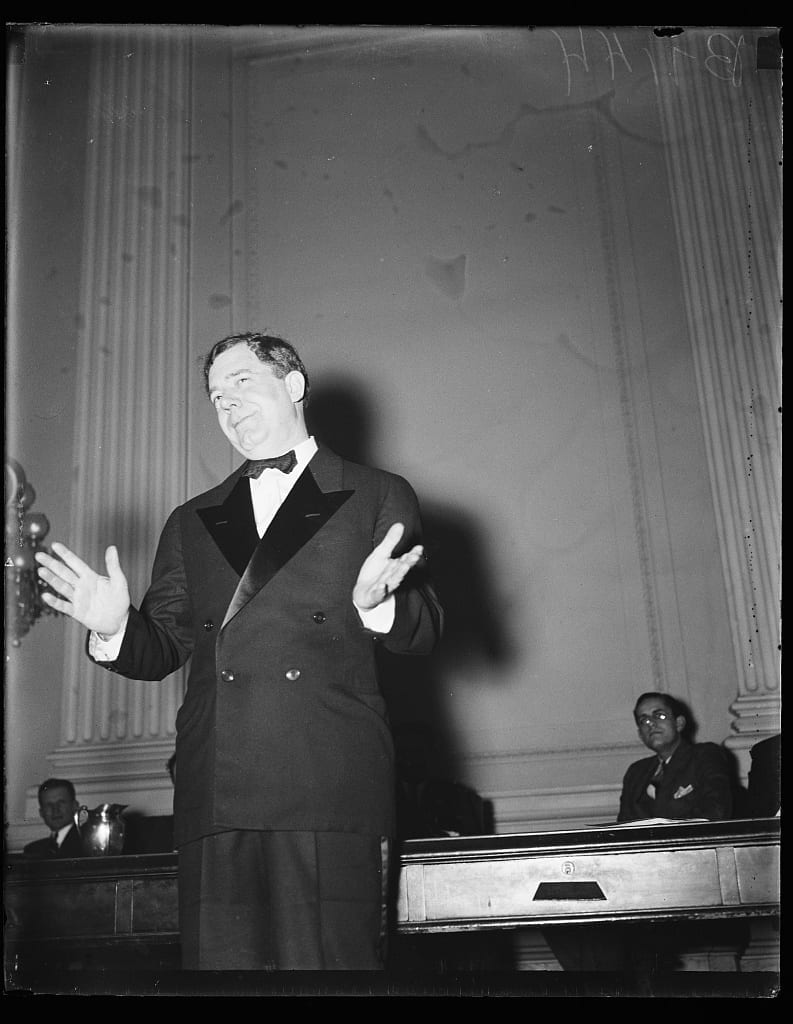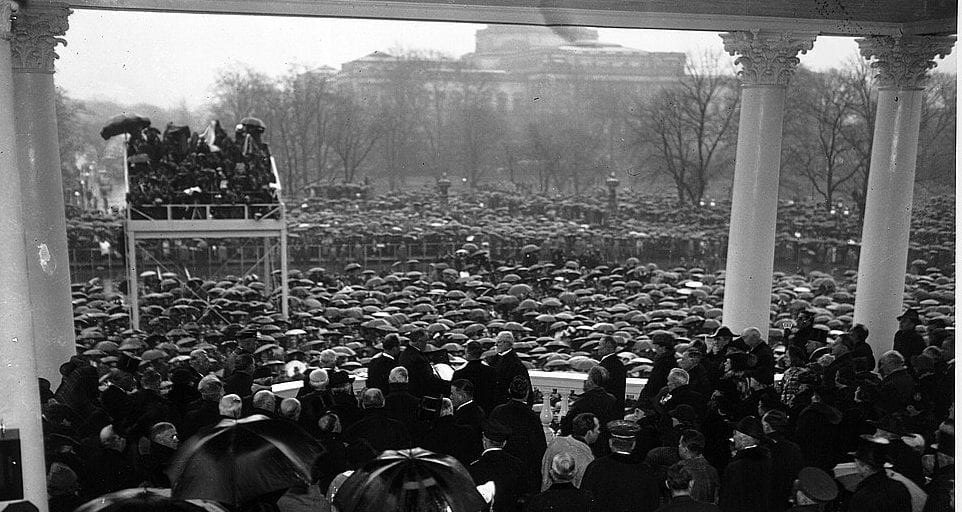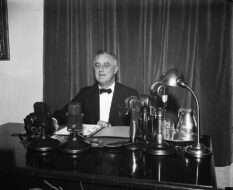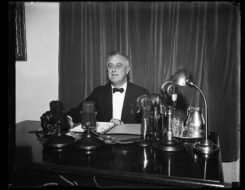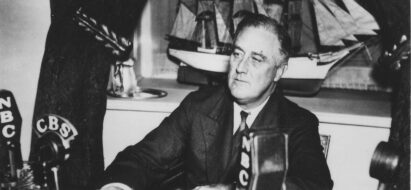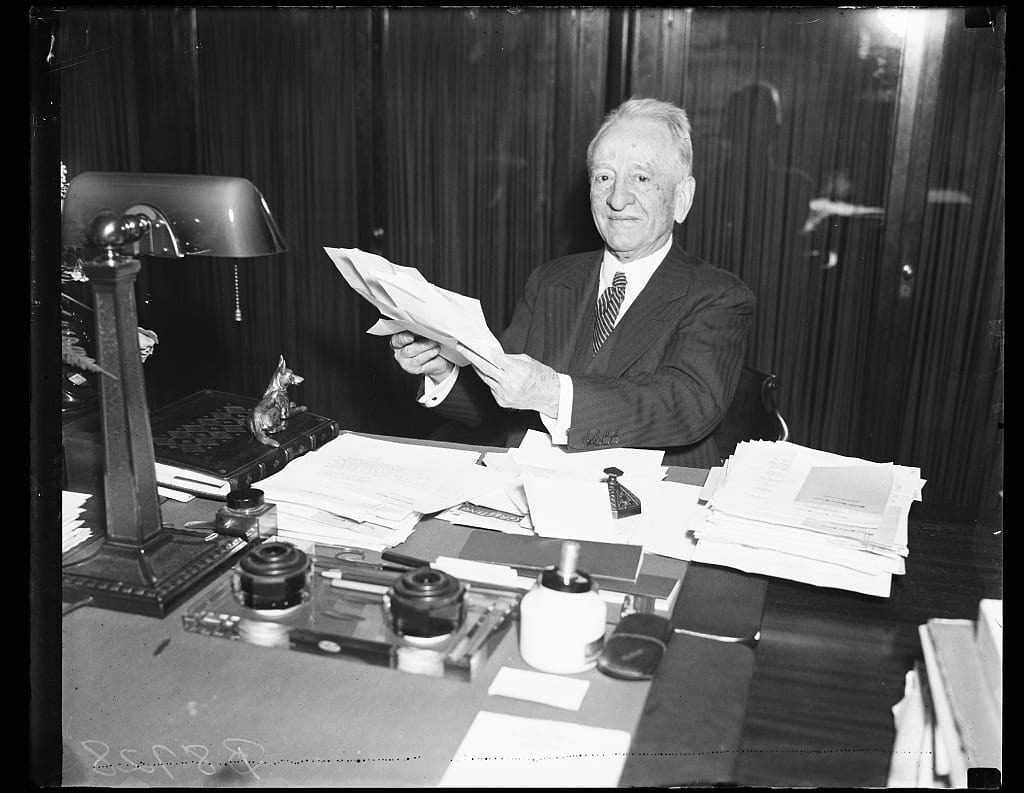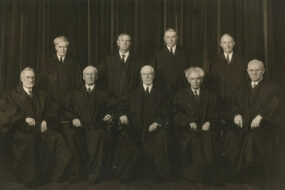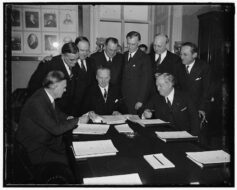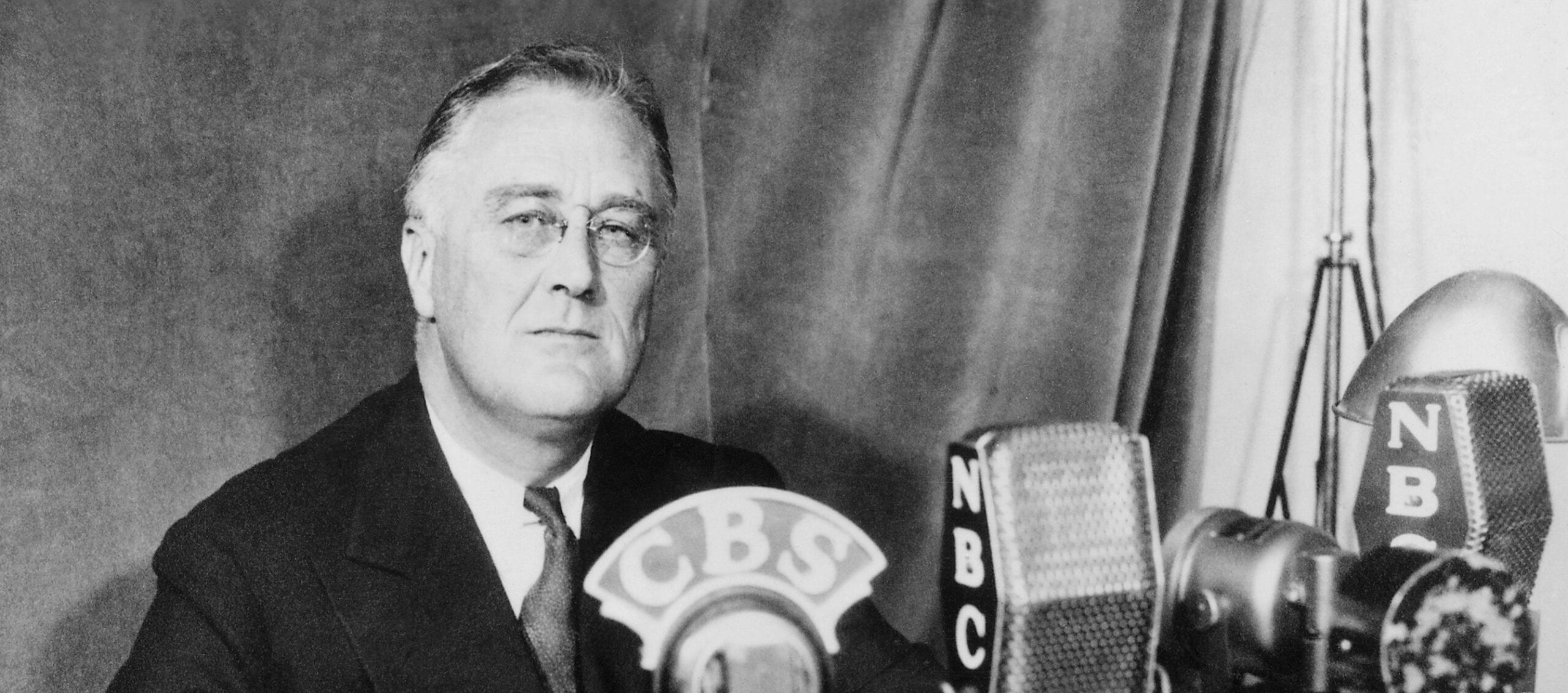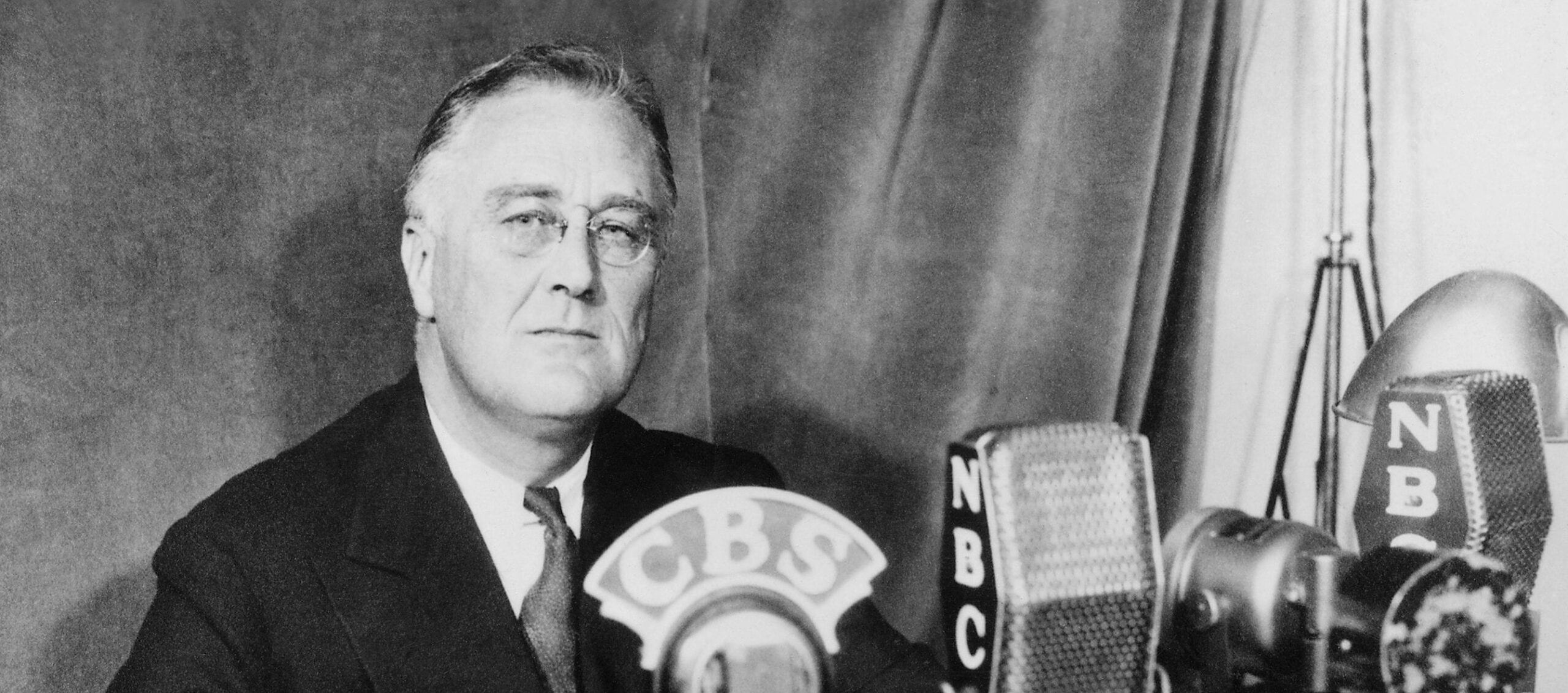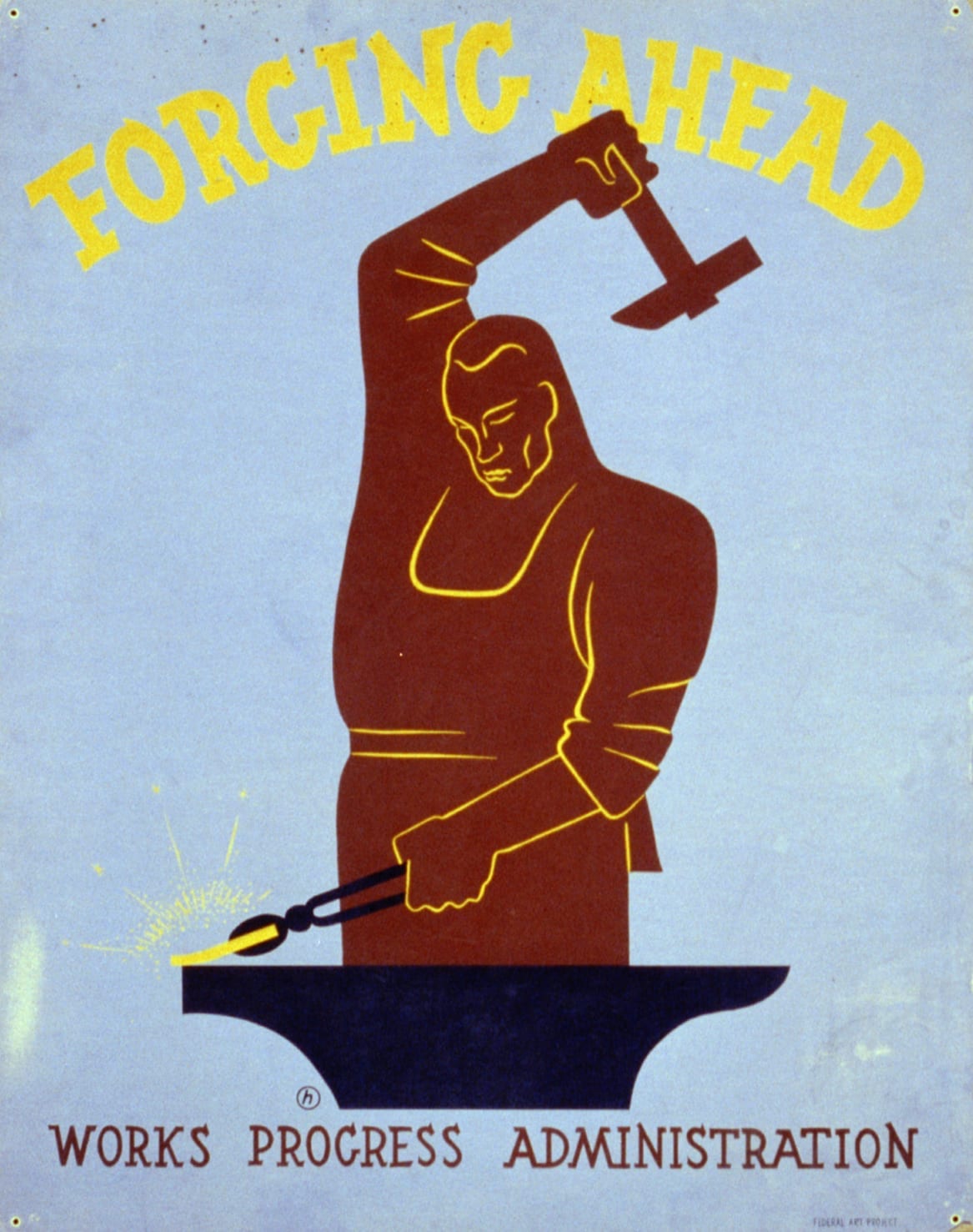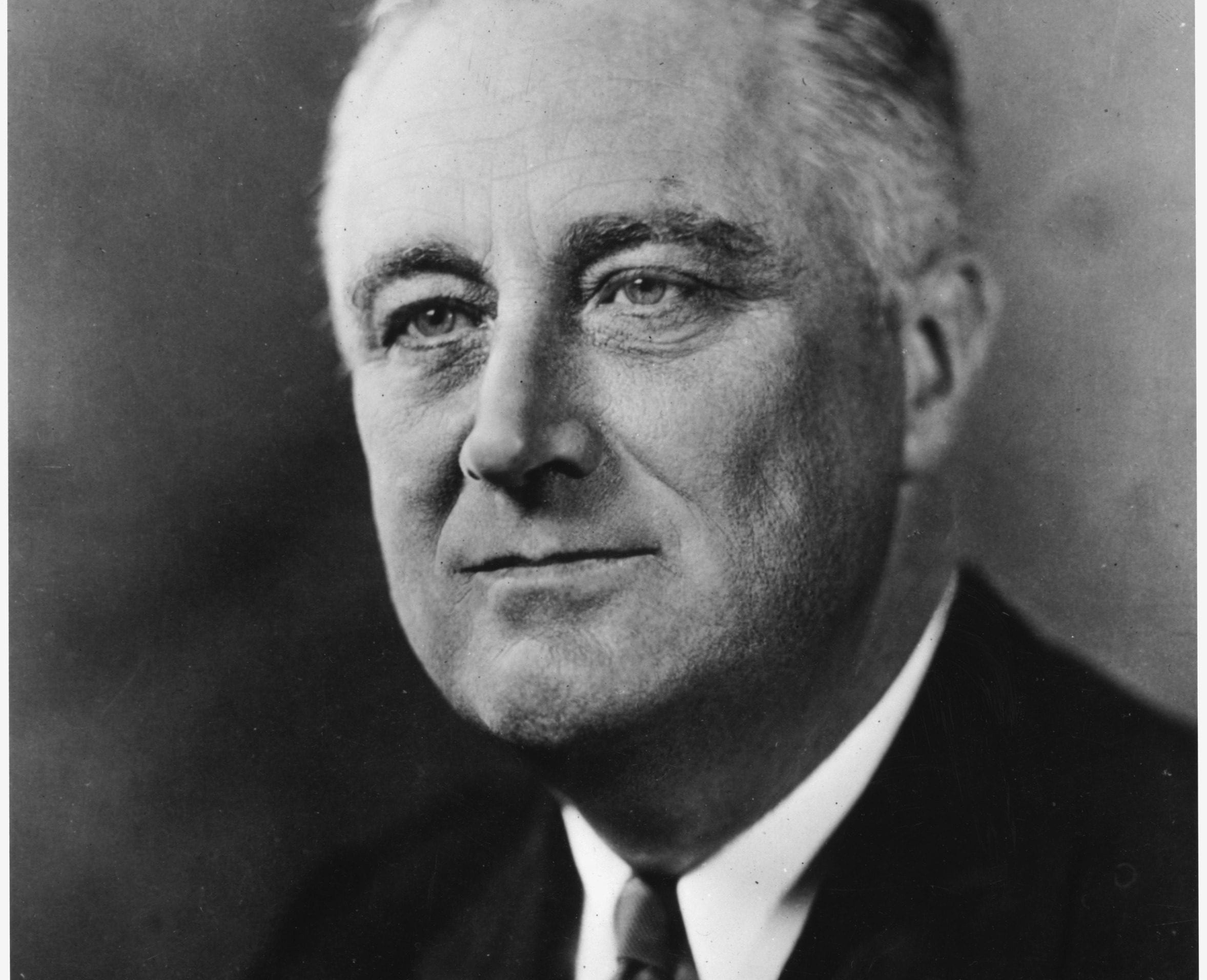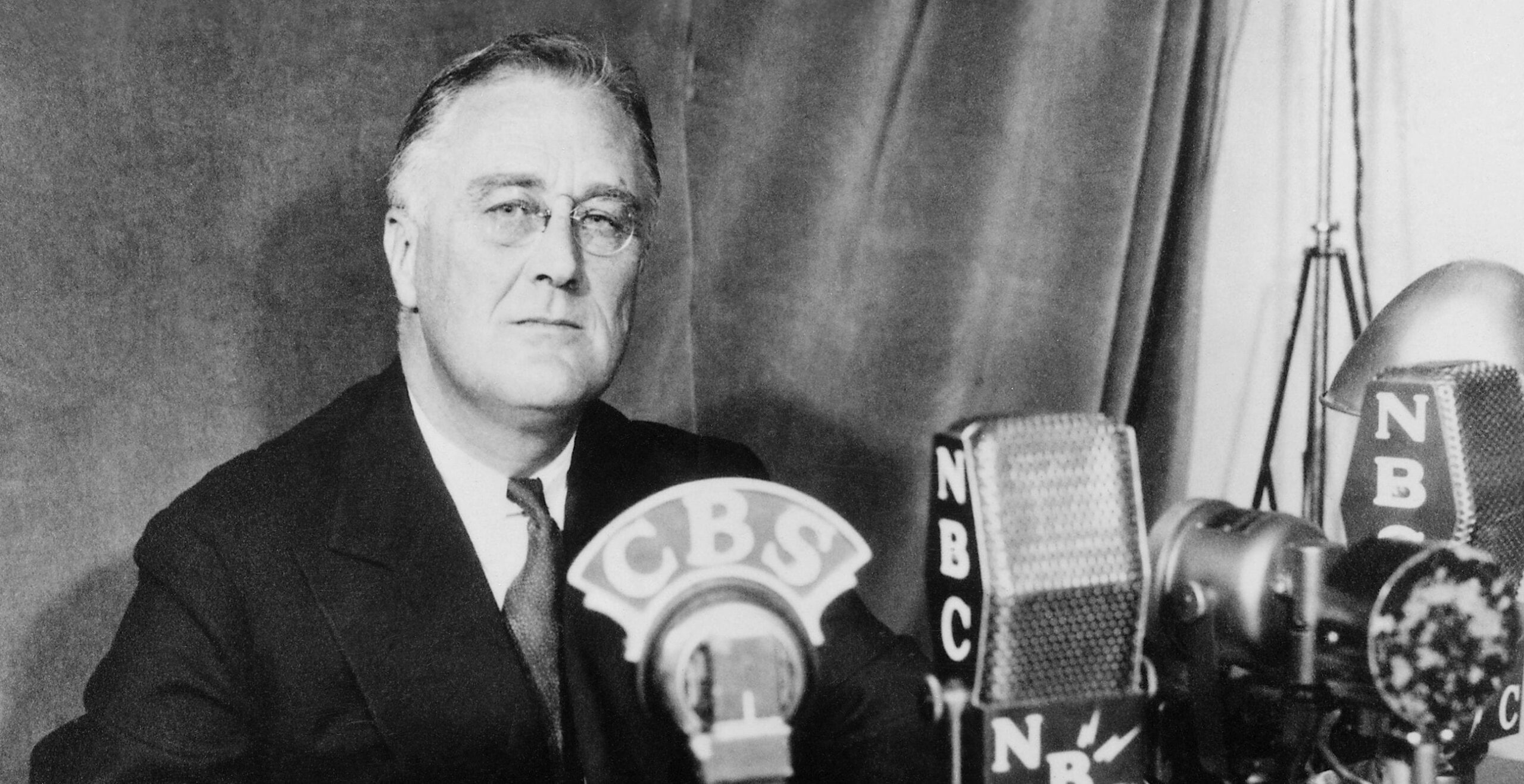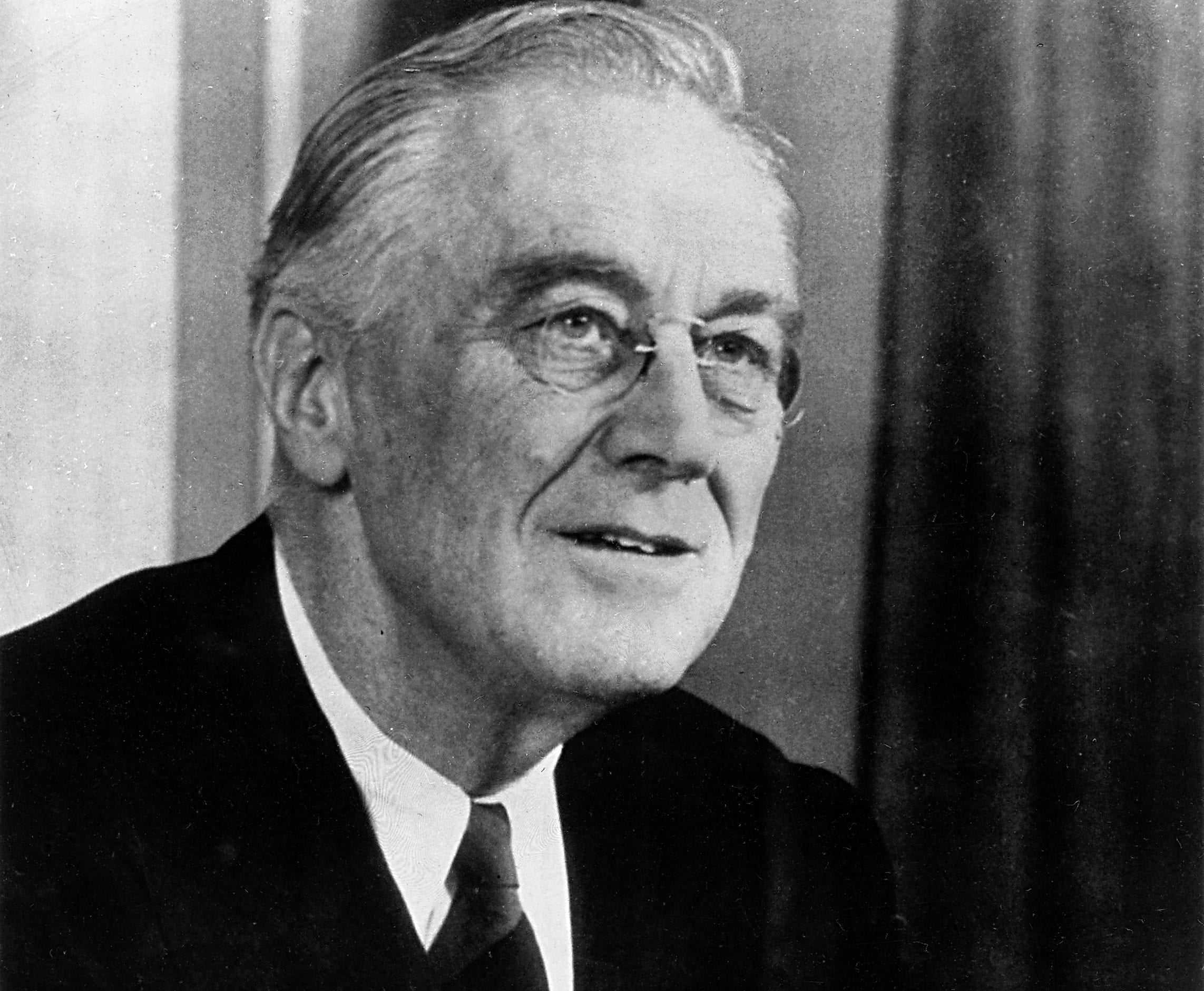

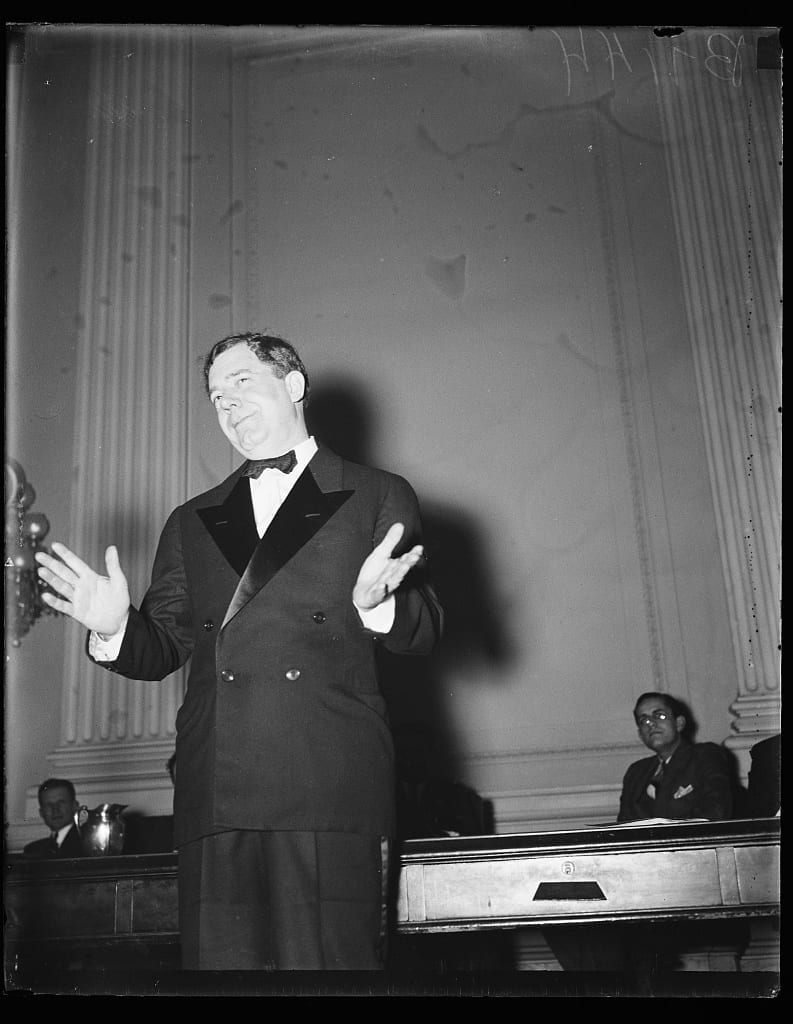
Introduction
One of Roosevelt’s most prominent opponents was Huey P. Long, who as a popular and reform-minded Democratic governor of Louisiana took on the oil industry and built a powerful state political organization. After being elected to the U.S. Senate (in 1930, although he did not take his seat until 1932), he used his national standing to issue frequent denunciations of the wealthy and the banking system. In 1932 he supported Roosevelt’s presidential campaign, and supported most of the measures of the early New Deal. However, the personalities of the two men immediately clashed, and the New York patrician and the colorful, rural senator known as the “Kingfish” (after a character in the popular radio show Amos & Andy) came to loathe one another.
Long’s greatest complaint with the New Deal was that to his mind it did not go far enough in reducing the great inequalities of wealth in American society. In March 1933 he proposed a series of bills that would have seized all fortunes greater than $100 million, as well as all annual income in excess of $1 million. When these laws failed – as did, indeed, everything Long proposed as senator – he established a national organization called the Share Our Wealth Society. By 1935 the society boasted 27,000 chapters nationwide, with a total membership of 7.5 million. Long hoped to use this group as a launching pad for a presidential run in 1936; however, in September 1935 he was assassinated by the son of one of his many political enemies.
Source: Congressional Record, 74th Cong., 1st sess., Vol. 79 (May 23, 1935), pp. 8040-43.
The Share Our Wealth Society proposes to enforce the traditions on which this country was founded, rather than to have them harmed; we aim to carry out the guaranties of our immortal Declaration of Independence and our Constitution of the United States, as interpreted by our forefathers who wrote them and who gave them to us; we will make the works and compacts of the Pilgrim fathers, taken from the Laws of God, from which we were warned never to depart, breathe into our Government again that spirit of liberty, justice, and mercy which they inspired in our founders in the days when they gave life and hope to our country. God has beckoned fullness and peace to our land; our forefathers have set the guide stakes so that none need fail to share in this abundance. Will we now have our generation, and the generations which are to come, cheated of such heritage because of the greed and control of wealth and opportunity by 600 families?
To members and well-wishers of the Share Our Wealth Society:
For 20 years I have been in the battle to provide that, so long as America has, or can produce, an abundance of the things which make life comfortable and happy, that none should own such much [sic] of the things which he does not need and cannot use as to deprive the balance of the people of a reasonable proportion of the necessities and conveniences of life. The whole line of any political thought has always been that America must face the time when the whole country would shoulder the obligation which it owes to every child born on earth – that is, a fair chance to life, liberty, and happiness. . . .
It is not out of place for me to say that the support which I brought to Mr. Roosevelt to secure his nomination and election as President – and without which it was hardly probabl[e] he would ever have been nominated – was on the assurances which I had that he would take the proper stand for the redistribution of wealth in the campaign. He did that much in the campaign; but after his election, what then? I need not tell you the story. We have not time to cry over our disappointments, over promises which others did not keep, and over pledges which were broken. . . .
It is impossible for the United States to preserve itself as a republic or as a democracy when 600 families own more of this Nation’s wealth – in fact, twice as much – as all the balance of the people put together. Ninety-six percent of our people live below the poverty line, while 4 percent own 87 percent of the wealth. America can have enough for all to live in comfort and still permit millionaires to own more than they can ever spend and to have more money than they can ever use; but America cannot allow the multimillionaires and the billionaires, a mere handful of them, to own everything unless we are willing to inflict starvation upon 125,000,000 people.
We looked upon the year 1929 as the year when too much was produced for the people to consume. We were told, and we believed, that the farmers raised too much cotton and wool for the people to wear and too much food for the people to eat. Therefore, much of it went to waste, some rotted, and much of it was burned or thrown into the river or into the ocean. But, when we picked up the bulletin of the Department of Agriculture for that year 1929, we found that, according to the diet which they said everyone should eat in order to be healthy, multiplying it by 120,000,000, the number of people we had in 1929, had all of our people had the things which the Government said that [they] should eat in order to live well[? W]e did not have enough even in 1929 to feed the people. In fact, these statistics show that in some instances we had from one-third to one-half less than the people needed, particularly of milk, eggs, butter, and dried fruits.
But why in the year 1929 did it appear we had too much? Because the people could not buy the things they wanted to eat, and needed to eat. That showed the need for and duty of the Government then and there, to have forced a sharing of our wealth, and a redistribution, and Roosevelt was elected on the pledge to do that very thing.
But what was done? Cotton was plowed under the ground. Hogs and cattle were burned by the millions. The same was done to wheat and corn, and farmers were paid starvation money not to raise and not to plant because of the fact that we did not want so much because of people having no money with which to buy. Less and less was produced, when already there was less produced than the people needed if they ate what the Government said they needed to sustain life. God forgive those rulers who burned hogs, threw milk in the river, and plowed under cotton while little children cried for meat and milk and something to put on their naked backs!
But the good God who placed this race on earth did not leave us without an understanding of how to meet such problems; nor did the Pilgrim fathers who landed at Plymouth in 1620 fail to set an example as to how a country and a nation of people should act under such circumstances, and our great statesman like Thomas Jefferson, Daniel Webster, Abraham Lincoln, Theodore Roosevelt, and Ralph Waldo Emerson did not fail to explain the need and necessity for following the precedents and purposes, which are necessary, even in a land of abundance, if all the people are to share the fruits produced therein. God’s law commanded that the wealth of the country should be redistributed ever so often, so that none should become too rich and none should become too poor; it commanded that debts should be canceled and released ever so often, so that the human race would not be loaded with a burden which it could never pay. When the Pilgrims landed at Plymouth in 1620, they established their law by compact, signed by everyone who was on board the Mayflower, and it provided that at the end of every 7 years the finances of their newly formed country would be readjusted and that all debts would be released and property redistributed, so that none should starve in the land of plenty, and none should have an abundance of more than he needed. These principles were preserved in the Declaration of Independence, signed in 1776, and in our Constitution. Our great statesmen, such men as James Madison, who wrote the Constitution of the United States, and Daniel Webster, its greatest exponent, admonished the generations of America to come that they must never forget to require the redistribution of wealth if they desire that their Republic should live.
And, now, what of America? Will we allow the political sports, the high heelers, the wiseacres, and those who ridicule us in our misery and poverty to keep us from organizing these societies in every hamlet so that they may bring back to life this law and custom of God and of this country? Is there a man or woman with a child born on the earth, or who expects ever to have a child born on earth, who is willing to have it raised under the present-day practices of piracy, where it comes into life burdened with debt, condemned to a system of slavery by which the sweat of its brow throughout its existence must go to satisfy the vanity and the luxury of a leisurely few, who can never be made to see that they are destroying the root and branch of the greatest country ever to have risen? Our country is calling; the laws of the Lord are calling; the graces of our forefathers would open today if their occupants could see the bloom and flower of their creation withering and dying because the greed of the financial masters of this country has starved and withheld from mankind those things produced by his own labor. To hell with the ridicule of the wise street-corner politician. Pay no attention to any newspaper or magazine that has sold its columns to perpetuate this crime against the people of America. Save this country. Save mankind. Who can be wrong in such a work, and who cares what consequences may come following the mandates of the Lord, of the Pilgrims, of Jefferson, Webster, and Lincoln? He who falls in this fight falls in the radiance of the future. Better to make this fight and lose than to be a party to a system that strangles humanity.
It took the genius of labor and the lives of all Americans to produce the wealth of this land. If any man, or 100 men, wind up with all that has been produced by 120,000,000 people, that does not mean that those 100 men produced the wealth of the country; it means that those 100 men stole, directly or indirectly, what 125,000,000 people produced. Let no one tell you that the money masters made this country. They did [no] such thing. Very few of them ever hewed the forest; very few ever hacked a crosstie; very few ever nailed a board; fewer of them ever laid a brick. Their fortunes came from manipulated finance, control of government, rigging of markets, the spider webs that have grabbed all businesses; they grab the fruits of the land, the conveniences and the luxuries that are intended for 125,000,000 people, and run their heelers to our meetings to set up the cry. “We earned it honestly.” The Lord says they did no such thing. The voices of our forefathers say they did no such thing. In this land of abundance, they have no right to impose starvation, misery, and pestilence for the purpose of vaunting their own pride and greed. . . .
Here is the whole sum and substance of the share-our-wealth movement:
1. Every family to be furnished by the Government a homestead allowance, free of debt, of not less than one-third the average family wealth of the country, which means, at the lowest, that every family shall have the reasonable comforts of life up to a value of from $5,000 to $6,000. No person to have a fortune of more than 100 to 300 times the average family fortune, which means that the limit to fortunes is between $1,500,000 and $5,000,000, with annual capital levy taxes imposed on all above $1,000,000.
2. The yearly income of every family shall be not less than one-third of the average family income, which means that, according to the estimates of the statisticians of the United States Government and Wall Street, no family’s annual income would be less than from $2,000 to $[2,500]. No yearly income shall be allowed to any person larger than from 100 to 300 times the size of the average family income, which means that no person would be allowed to earn in any year more than from $600,000 to $1,800,000, all to be subject to present income-tax laws.
3. To limit or regulate the hours of work to such an extent as to prevent overproduction; the most modern and efficient machinery would be encouraged, so that as much would be produced as possible so as to satisfy all demands of the people, but to also allow the maximum time to the workers for recreation, convenience, education, and luxuries of life.
4. An old-age pension to the persons over 60.
5. To balance agricultural production with what can be consumed according to the laws of God, which includes the preserving and storage of surplus commodities to be paid for and held by the Government for the emergencies when such are needed. Please bear in mind, however, that when the people of America have had money to buy things they needed, we have never had a surplus of any commodity. This plan of God does not call for destroying any of the things raised to eat or wear, nor does it countenance wholesale destruction of hogs, cattle, or milk.
6. To pay the veterans of our wars what we owe them and to care for their disabled.
7. Education and training for all children to be equal in opportunity in all schools, colleges, universities, and other institutions for training in the professions and vocations of life; to be regulated on the capacity of children to learn, and not on the ability of parents to pay the costs. Training for life’s work to be as much universal and thorough for all walks in life as has been the training in the arts of killing.
8. The raising of revenue and taxes for the support of this program to come from the reduction of swollen fortunes from the top, as well as for the support of public works to give employment whenever there may be any slackening necessary in private enterprise.
I now ask those who read this circular to help us at once in this work of giving life and happiness to our people – not a starvation dole upon which someone may live in misery from week to week. Before this miserable system of wreckage has destroyed the life germ of respect and culture in our American people let us save what was here, merely by having none too poor and none too rich. The theory of the Share Our Wealth Society is to have enough for all, but not to have one with so much that less than enough remains for the balance of the people.
Please, therefore, let me ask you who read this document – please help this work before it is too late for us to be of help to our people. We ask you now, (1) help to get your neighbor into the work of this society and (2) help get other Share Our Wealth societies started in your county and in adjoining counties and get them to go out to organize other societies.
To print and mail out this circular costs about 60 cents per hundred, or $6 per thousand. Anyone who reads this and wants more circulars of this kind to use in the work, can get them for that price by sending the money to me, and I will pay the printer for him. Better still, if you can have this circular reprinted in your own town or city.
Let everyone who feels he wishes to help in our work start right out and go ahead. One man or woman is as important as any other. Take up the fight! Do not wait for someone else to tell you what to do. There are no high lights in this effort. We have no State managers and no city managers. Everyone can take up the work, and as many societies can be organized as there are people to organize them. One is the same as another. The reward and compensation is the salvation of humanity. Fear no opposition. “He who fails in this fight falls in the radiance of the future!”

Conversation-based seminars for collegial PD, one-day and multi-day seminars, graduate credit seminars (MA degree), online and in-person.
